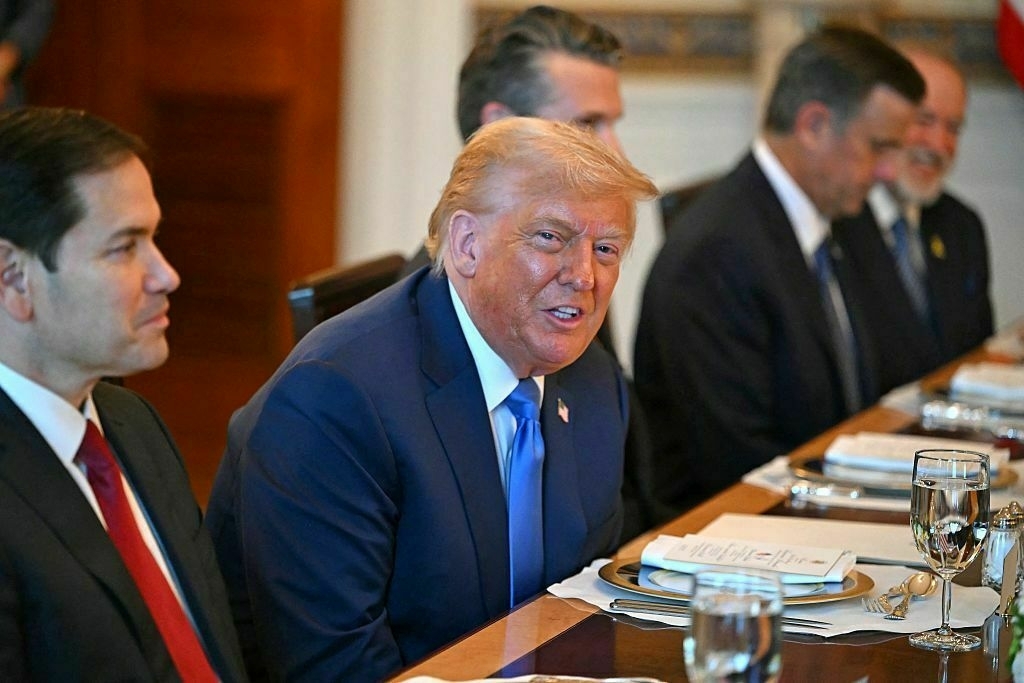-
Ex-military chief Zaluzhnyi tops Ukraine's trust ranking, his successor falls behind
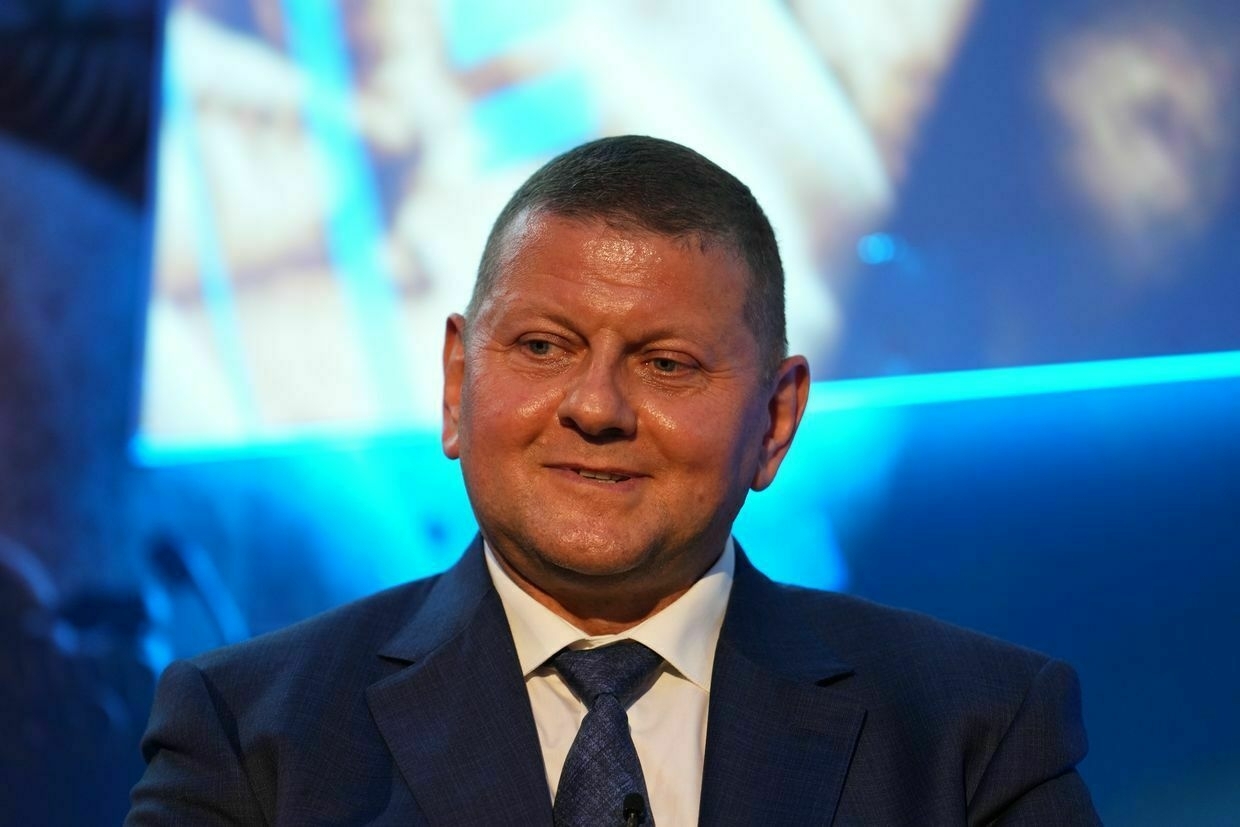
Valerii Zaluzhnyi, Ukraine’s former top general, remains the country’s most trusted public figure, ahead of President Volodymyr Zelensky and military intelligence chief Kyrylo Budanov, according to a new poll released by the Rating Sociological Group on July 9.
The poll, conducted on July 4 and 5, found that 73% of Ukrainians trust Zaluzhnyi, who was dismissed as commander-in-chief in February 2024 but continues to command strong public support. Zaluzhnyi currently serves as Ukraine’s ambassador to the United Kingdom.
Zelensky was trusted by 67% of respondents, while Budanov received a 56% trust rating. Current Commander-in-Chief Oleksandr Syrskyi received just 41% support. Trust in Prime Minister Denys Shmyhal slipped significantly, with only 25% of those surveyed saying they trust him.
Shmyhal has served as Ukraine’s prime minister since March 2020, steering the government through reforms and wartime governance. Despite persistent rumors of an impending government reshuffle, he retained his post during a cabinet shake-up in September 2024.
The survey was conducted using computer-assisted telephone interviews (CATI) with a nationally representative sample of 1,000 adults across Ukraine, excluding occupied territories.
A separate June poll released by the Kyiv International Institute of Sociology (KIIS) found that trust in the president had dropped 11 points since May to 65%, with a trust balance of +35% — the lowest since March.
Zelensky’s trust rating remains well above its February low of 57%, but regional disparities persist. The KIIS poll showed support was highest in western Ukraine at 73%, and lowest in the south and east at 61% — regions more frequently targeted by Russian attacks.
As the Trump rollercoaster continues, Ukraine struggles to work out where it standsUkrainians breathed a sigh of relief of sorts this week after it was confirmed that U.S. President Donald Trump had ordered the continuation of shipments of critical military aid after a brief pause. The days-long hiccup alarmed a Ukraine beset with ever-escalating Russian air strikes and a dwindling supply of the means to stop them, and is just the latest instalment of a saga riven with uncertainty over Washington’s willingness to give Ukraine what it needs to defend itself against Russia. A The Kyiv IndependentKollen Post
The Kyiv IndependentKollen Post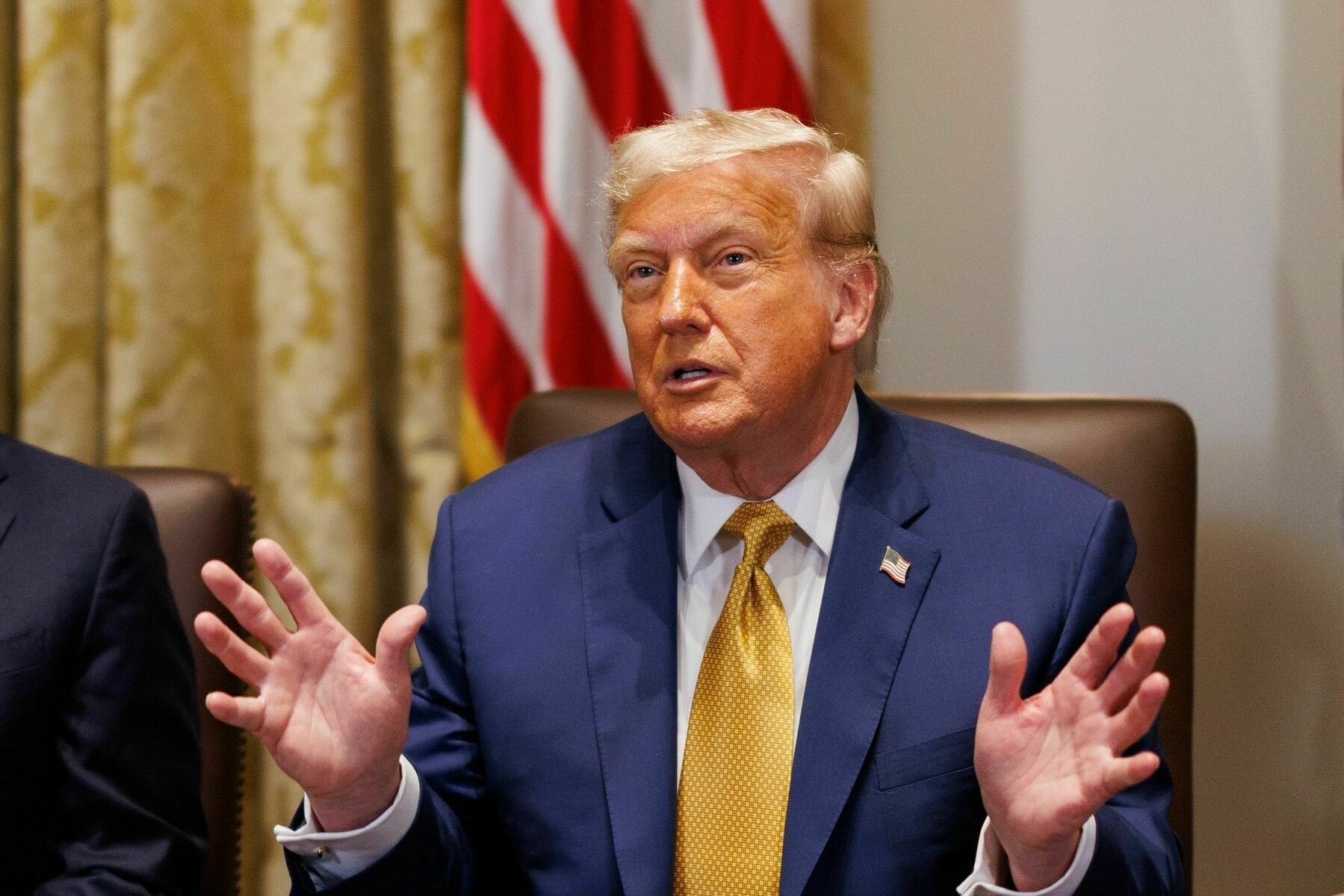
-
In historic feat, Ukraine's 3rd Brigade captures Russian troops using only drones and robots, military says
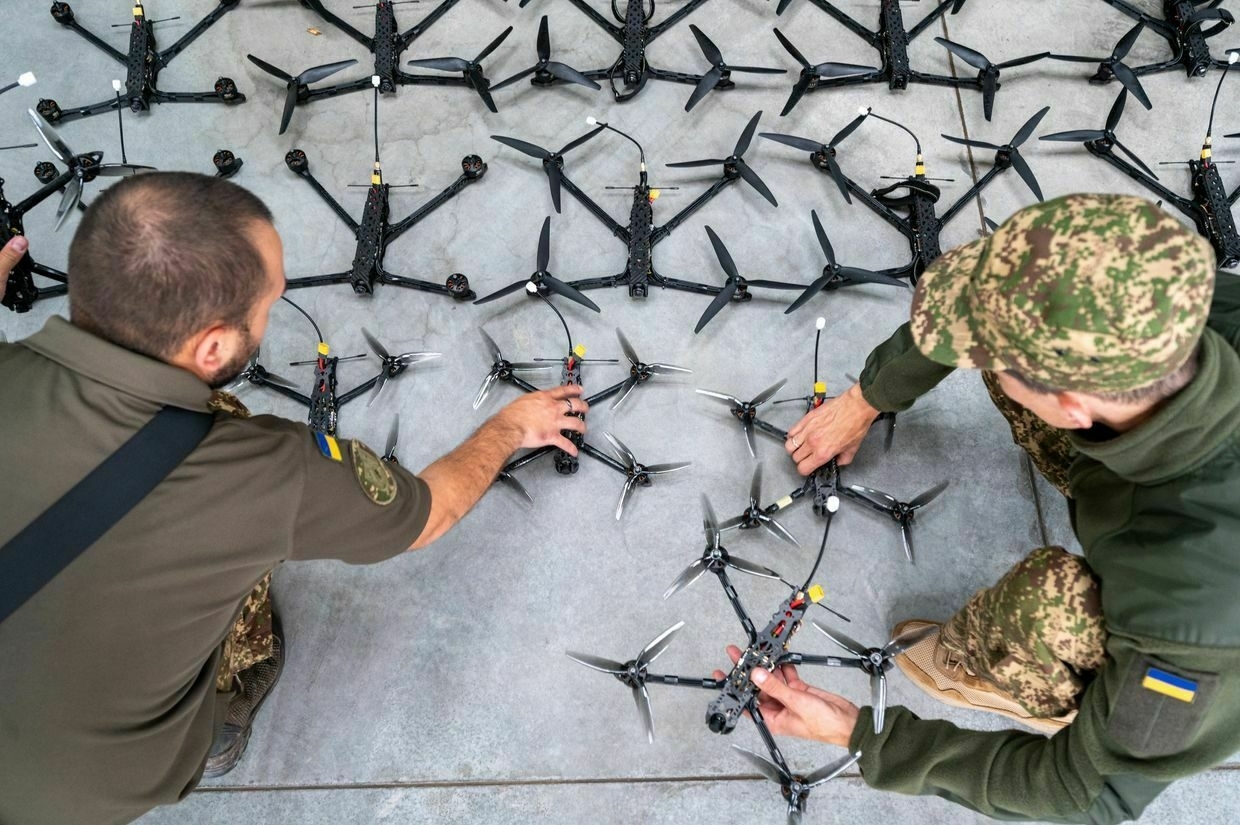
Ukrainian forces have for the first time captured Russian troops without the use of infantry, relying solely on drones and ground-based robotic systems, Ukraine’s 3rd Separate Assault Brigade said on July 9.
“For the first time in history: Russian soldiers surrendered to the 3rd Assault Brigade’s ground drones,” the statement read.
Ukraine has increasingly employed drone and robotic technologies on the battlefield as part of its broader strategy to minimize troop losses and adapt to evolving threats along the front line during Russia’s full-scale invasion.
The operation took place in Kharkiv Oblast in northeastern Ukraine, where the brigade deployed first-person view (FPV) drones and kamikaze ground robotic platforms to attack Russian fortifications, the brigade said in a statement.
The exact date of the operation was not provided.
0:00/Footage depicting a Ukrainian operation to capture Russian soldiers with the use of drone systems. Video published on July 9, 2025. (3rd Assault Brigade/Telegram) According to the brigade, Ukrainian forces targeted and destroyed Russian bunkers with kamikaze drones and robotic ground vehicles. As another robot approached a damaged Russian holdout, the remaining Russian soldiers reportedly chose to surrender.
The captured troops were then guided out of the combat zone by drones and taken into custody by Ukrainian forces, the brigade said.
The brigade added that the Russian positions had previously resisted capture by neighboring Ukrainian units, but the successful assault by unmanned systems allowed Ukrainian forces to take control of both Russian fortifications and a nearby forest line.
As the Trump rollercoaster continues, Ukraine struggles to work out where it standsUkrainians breathed a sigh of relief of sorts this week after it was confirmed that U.S. President Donald Trump had ordered the continuation of shipments of critical military aid after a brief pause. The days-long hiccup alarmed a Ukraine beset with ever-escalating Russian air strikes and a dwindling supply of the means to stop them, and is just the latest instalment of a saga riven with uncertainty over Washington’s willingness to give Ukraine what it needs to defend itself against Russia. A The Kyiv IndependentKollen Post
The Kyiv IndependentKollen Post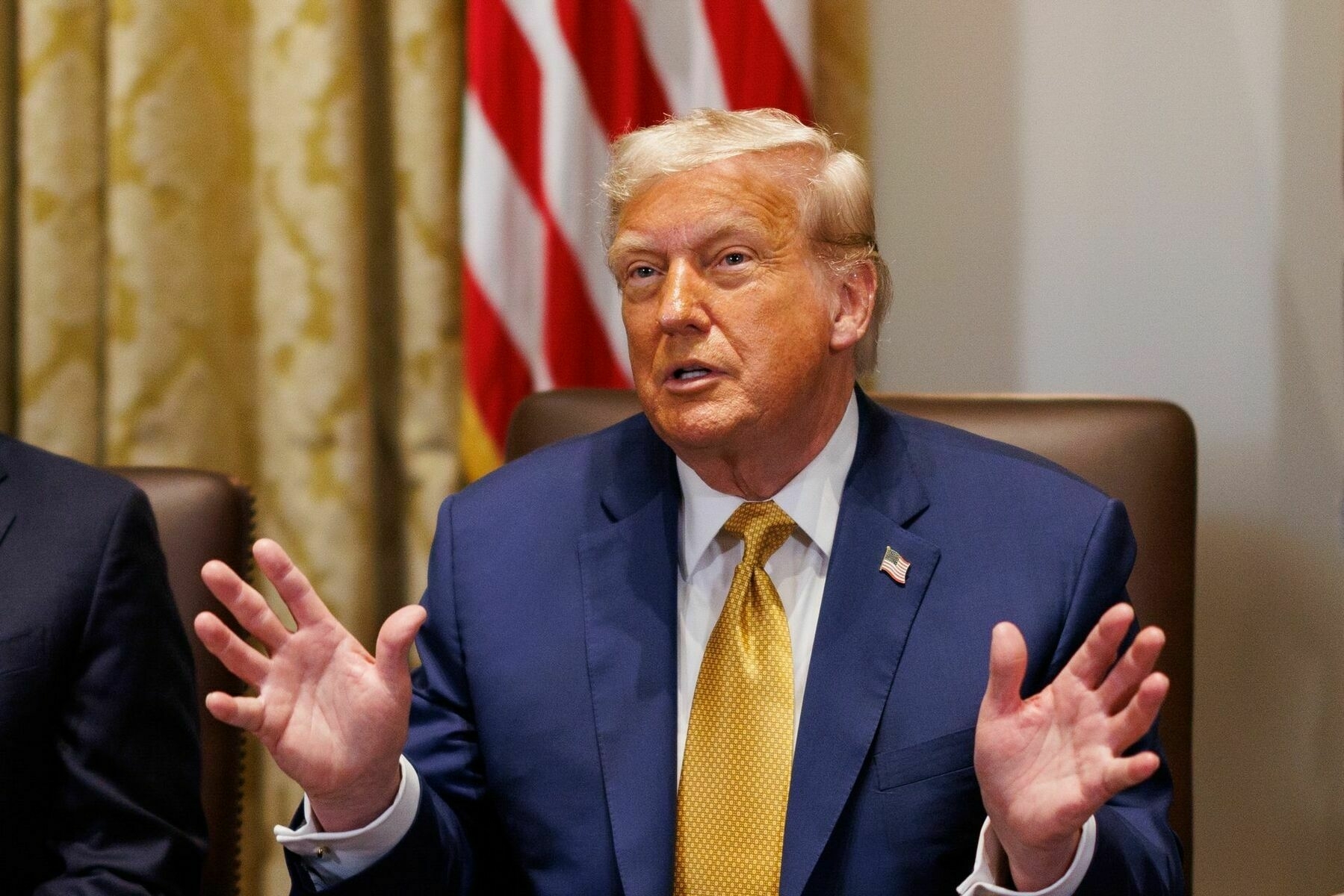
-
As the Trump rollercoaster continues, Ukraine struggles to work out where it stands
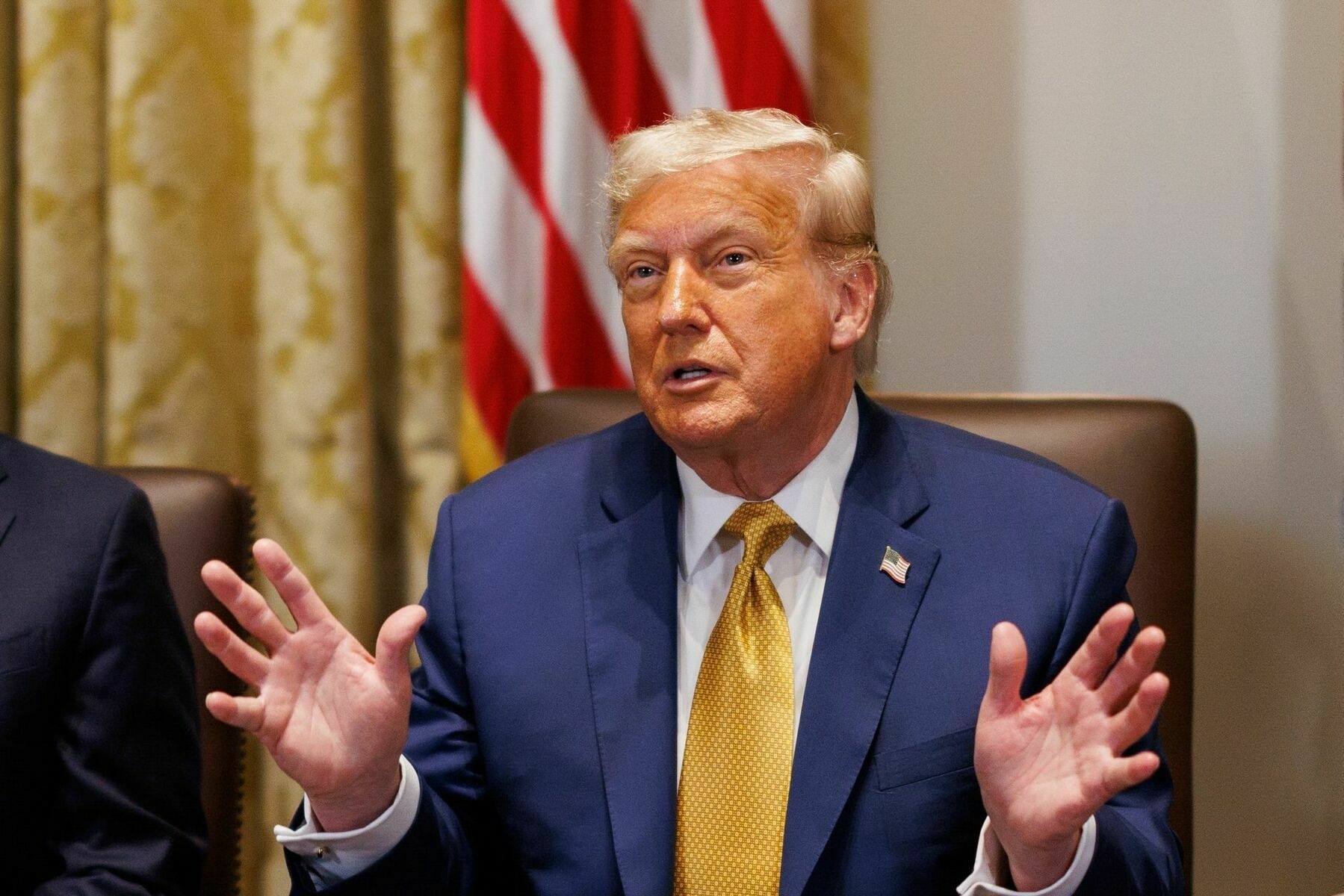
Ukrainians breathed a sigh of relief of sorts this week after it was confirmed that U.S. President Donald Trump had ordered the continuation of shipments of critical military aid after a brief pause.
The days-long hiccup alarmed a Ukraine beset with ever-escalating Russian air strikes and a dwindling supply of the means to stop them, and is just the latest instalment of a saga riven with uncertainty over Washington’s willingness to give Ukraine what it needs to defend itself against Russia.
A lack of Patriot interceptor missiles and general economizing on anti-air defense have been the most noticeable results of unreliable U.S. aid in recent months, with many more civilians dying in Russian air attacks.
And even news of a partial resumption of supplies has been met by some on the front lines of Russia’s aerial attacks with skepticism.
“Trump decided to send Ukraine only 10 Patriot interceptor missiles out of 30 that were stuck in Poland,” Oleksiy, a deputy commander who coordinates air defense units in Kyiv Oblast, told the Kyiv Independent, requesting to be identified by first name only for security reasons.
“So it works out that they started out by freezing the transfer of 30, and now are sending only 10 of them — and that’s called ‘aid’?"
Trump’s ever-shifting stance on UkraineTrump’s position on Ukraine and his support for the country’s fight against Russia’s full-scale invasion has been a rollercoaster ride, yet there are signs that Kyiv is currently at an all-time high point of his presidency.
Although the U.S. has yet to take concrete steps, such as further sanctions to force Moscow to end its war, Trump’s public statements in recent weeks have softened towards Ukraine and hardened against Russia and its President, Vladimir Putin.
“We get a lot of bullsh*t thrown at us by Putin,” he said at a cabinet meeting on July 8.
“He’s very nice all the time, but it turns out to be meaningless."
Meanwhile, President Volodymyr Zelensky described his most recent phone call with Trump on July 4 as “the best conversation in all this time."
“Patriot (missiles) are key to protection from ballistic (missiles). We discussed several other important issues that our teams will work out in detail at meetings in the near future,” Zelensky said on July 5 a day after the phone call.
Since the conversation, Trump has reversed at least some of the frozen military aid, with Axios reporting 10 more PAC-3 Patriot interceptor missiles coming to Ukraine. His administration is also teasing another Patriot anti-air missile system, the Wall Street Journal (WSJ) reported.
Axios reporting suggested ongoing negotiations between the U.S. and Germany over the latter providing more Patriot systems as well. An unnamed source advised that Ukrainians “should feel better than they have at any point during the Trump presidency (…) Putin was a jerk,” Axios reported.
Trump is also reportedly now on board with a tough new sanctions package on Russia. Even the New York Post, Trump’s favorite newspaper, recently put out an op-ed calling for re-arming Ukraine.
But this apparent change of tone from Trump is being treated with caution in a Ukraine already accustomed to an unpredictable, change-on-a-dime White House, with those who spoke to the Kyiv Independent unwilling to sit back and assume it’s an indication of a long-term trend they can rely on.
“Trump, as always, says one thing and does another,” Bohdan Danyliv, who heads military aid for Ukrainian charity the Prytula Foundation, told the Kyiv Independent.
“It’s another reason we need to shake up the European Union, so they become more nimble and make decisions quicker, because with these announcements — and all of Trump’s new moods — we all need to learn how to live without America. Not just Ukraine, but all of Europe."
At a June 8 event in Washington, D.C., Tom Karako, director of the Center for Strategic and International Studies, noted the contradictory messaging coming out of the White House in relation to the global distribution priorities of Patriot interceptors.
The U.S. last month rerouted two Patriot systems from Japan and South Korea to defend against 14 Iranian ballistic missiles on a base at al-Udeid during a strike pre-choreographed to effectively allow Iran to make a public retaliation for Israeli and U.S. strikes on its nuclear facilities.
“I’m scratching my head thinking, wait a minute, we can’t spare 30 PAC-3s for Ukraine, but we’re gonna spare probably a similar number to make the Iranians feel better about themselves?” Karako said.
But Ihor Fedirko, who recently left Ukraine’s Strategic Industries Ministry to lead the Ukrainian Council of Defense Industry, spoke with more optimism about the recent softening of Trump’s attitude.
“I consider the return of an ally like the United States to be a huge victory for NATO and Ukraine,” Fedirko told the Kyiv Independent.
“It’s just the beginning — I think that after these 10 missiles, more systems will come, and our air defense will be renewed, but these past three months have been a stress test for us — that is, we didn’t just throw up our hands and say, ‘without the U.S., we’ll die, we surrender,’” Fedirko said.
“No, we invested more into our military-industrial complex and international aid."
‘Nearly everything was aimed at Lutsk’ — Russia launches record 741 drones, missiles, targeting western UkraineRussia launched another mass missile and drone attack overnight on July 9, targeting Ukrainian cities, including in the country’s far-west regions located hundreds of kilometers from the front line. The Kyiv IndependentAbbey Fenbert
The Kyiv IndependentAbbey Fenbert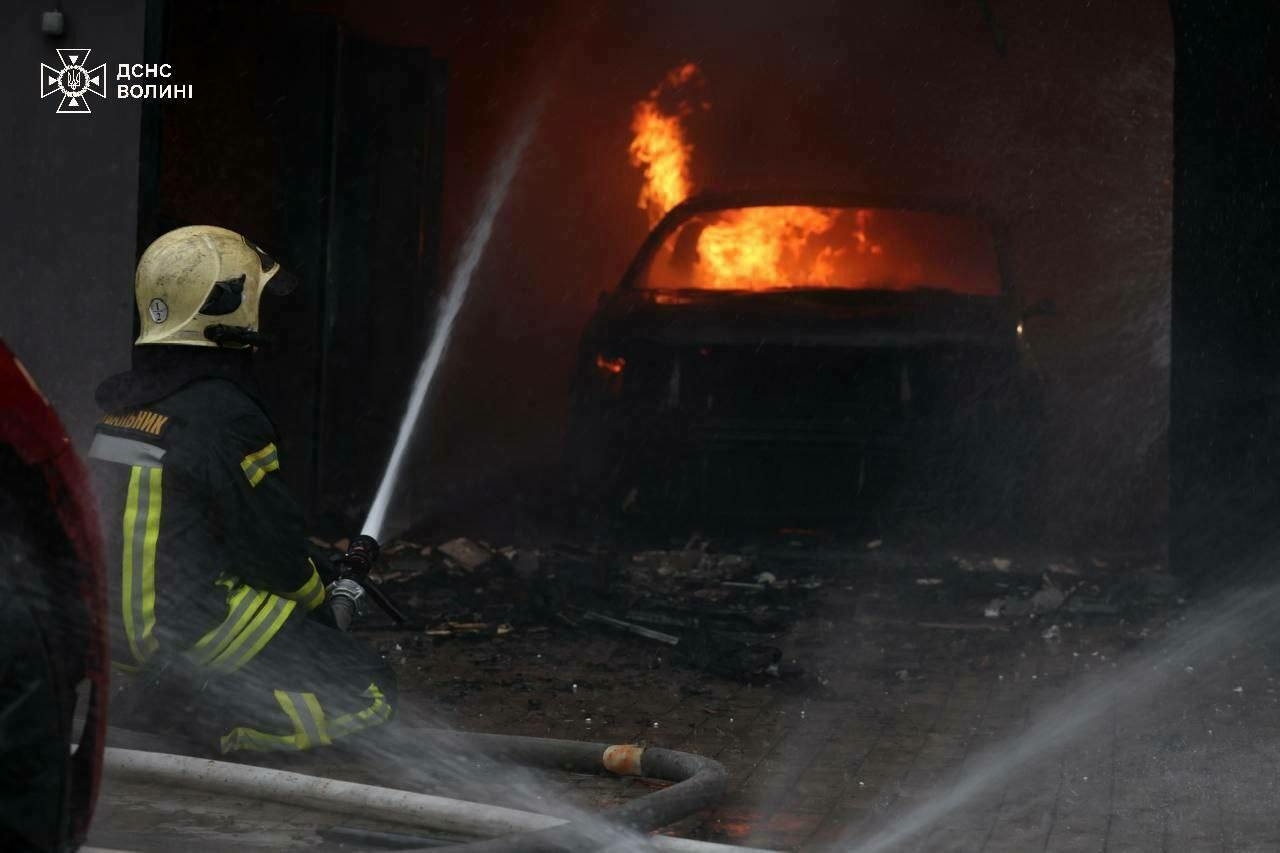
-
Diplomatic means in Russia-Ukraine war 'exhausted,' Germany's Merz warns
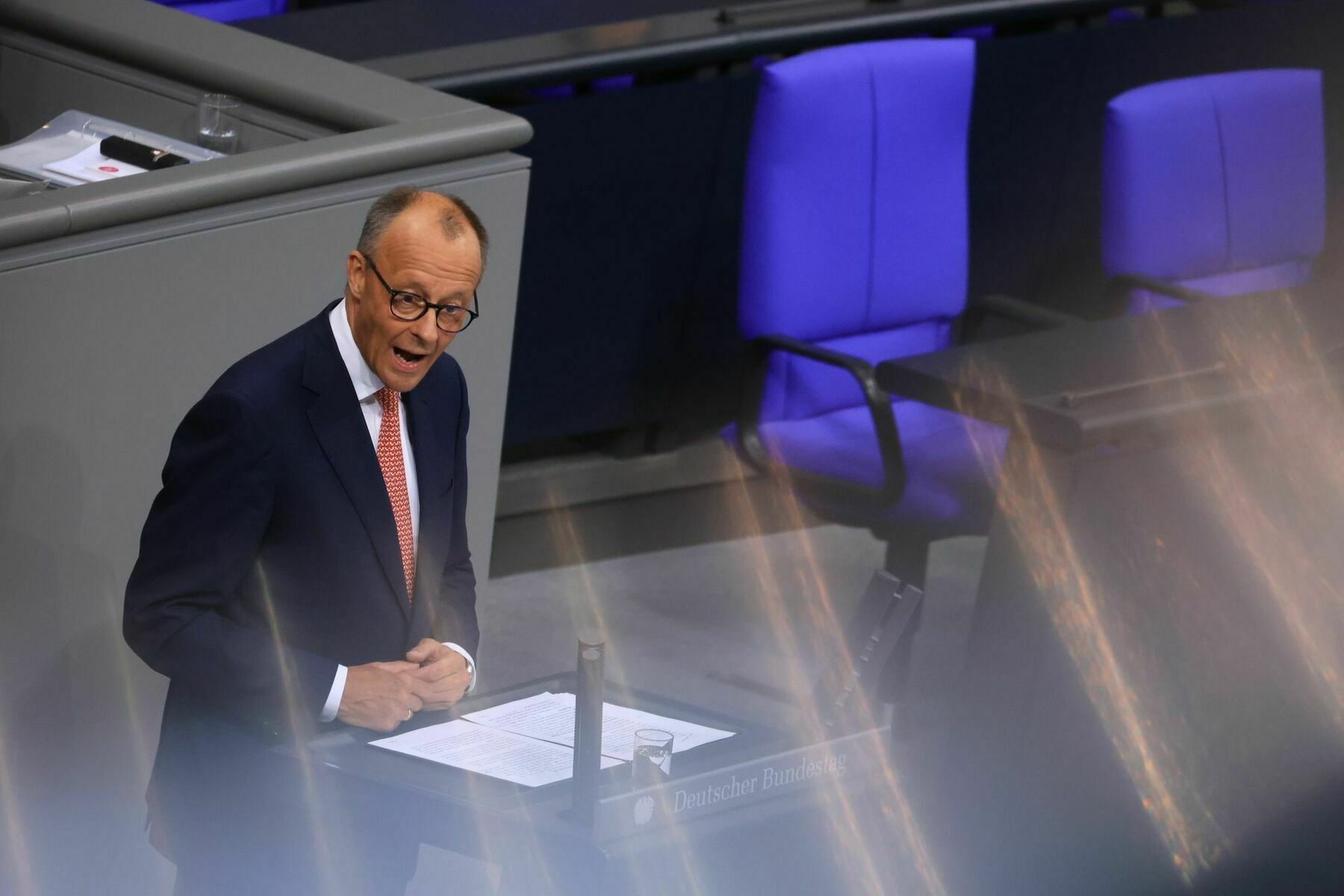
Diplomatic means for resolving the Russia-Ukraine war “have been exhausted,” German Chancellor Friedrich Merz said in the parliament on July 9, promising further assistance to Kyiv.
The comments come as the recent Russian-Ukrainian peace talks in Istanbul failed to reach any progress in ending the hostilities, except for an agreement on new prisoner exchanges.
“When a criminal regime openly questions another country’s right to exist with military force and sets out to destroy the political order of freedom on the entire European continent, the federal government I lead will do everything in its power to prevent this,” Merz said in comments cited by the Guardian.
The German chancellor vowed to maintain backing for Ukraine “even against the pressure of the political left and the pro-Russian right in this house.”
Germany has been the leading European supporter of Ukraine during the full-scale war, providing almost 44 billion euros (around $50 billion) in various aid since 2022.
While Merz vowed to maintain this support since his election victory earlier this year, the pro-Ukraine direction has faced mounting pressure from the far-right Alternative for Germany (AfD) and some left-wing politicians.
A group of figures connected to the Social Democratic Party (SPD), a coalition partner of Merz’s center-right CDU/CSU alliance, issued a manifesto last month calling for diplomatic talks with Russia.
The statement was rejected by both Merz and German Defense Minister Boris Pistorius, himself an SPD member.
Germany’s support for Ukraine is ever more crucial now as the U.S. support grows increasingly uncertain. U.S. President Donald Trump has pledged to broker a swift peace deal between Kyiv and Moscow and has long been reluctant to greenlight new military aid packages.
Earlier in July, the Pentagon paused some of the military shipments approved by the Biden administration en route to Ukraine. Trump ordered at least some of these deliveries resumed and promised to help Kyiv with Patriot supplies, just as Russia escalates aerial strikes against Ukraine.
Seeking to bolster the Ukrainian sky shield against Russian attacks, Trump reportedly proposed to Merz to sell an additional Patriot battery to Ukraine. Berlin has previously provided at least three Patriot systems to the country.
Ukraine war latest: Trump reportedly pledges to send 10 Patriot missiles to Ukraine, asks Germany to send battery* Trump reportedly pledges to send 10 Patriot missiles to Ukraine, asks Germany to send battery * ‘They have to be able to defend themselves’ — Trump says US will send additional weapons shipments to Ukraine, criticizes Putin * EU to impose ‘toughest’ sanctions on Russia in coordination with US senators, French foreign minister says * Russia’s Black Sea Fleet shrinks presence in key Crimean bay, Ukrainian partisans say * Putin signs decree allowing foreigners to serve in Russian army during The Kyiv IndependentThe Kyiv Independent news desk
The Kyiv IndependentThe Kyiv Independent news desk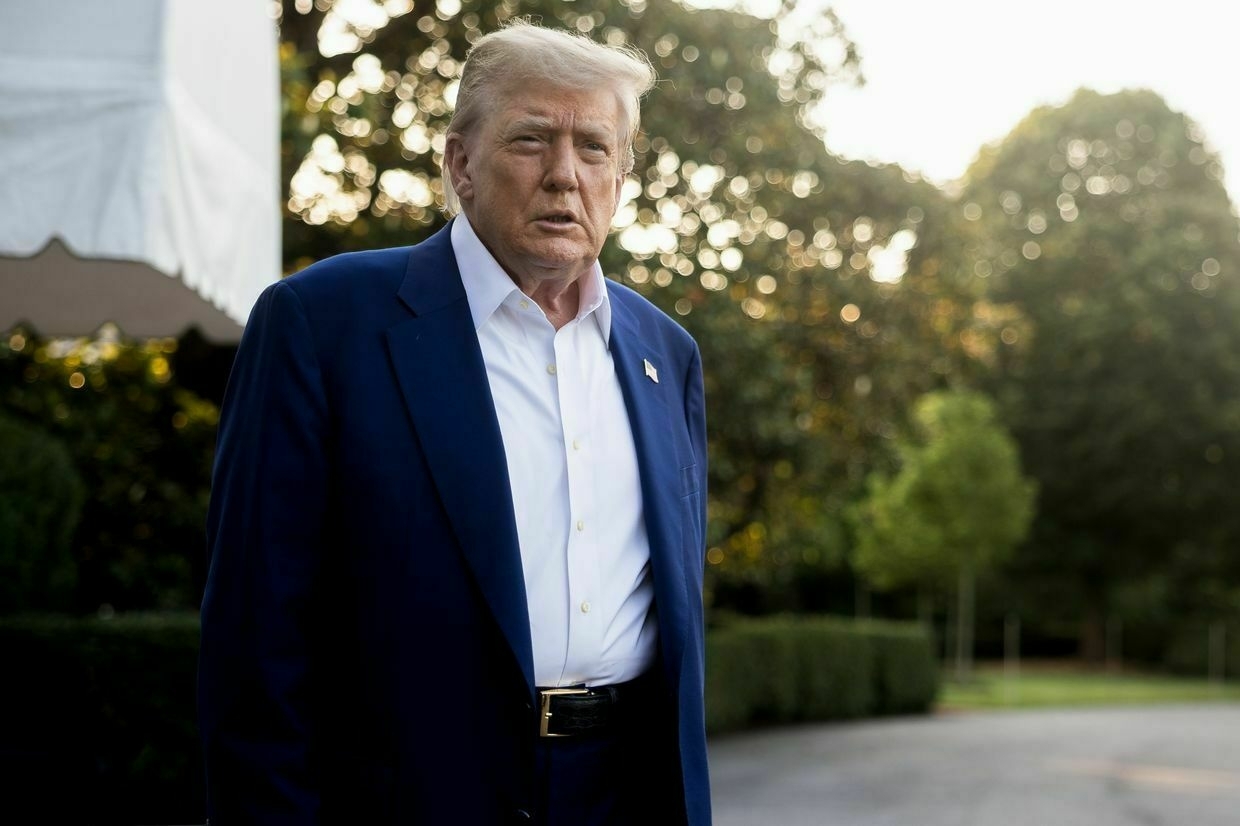
-
Lithuania, Finland pivot to landmine production, potentially supplying to Ukraine, Reuters reports
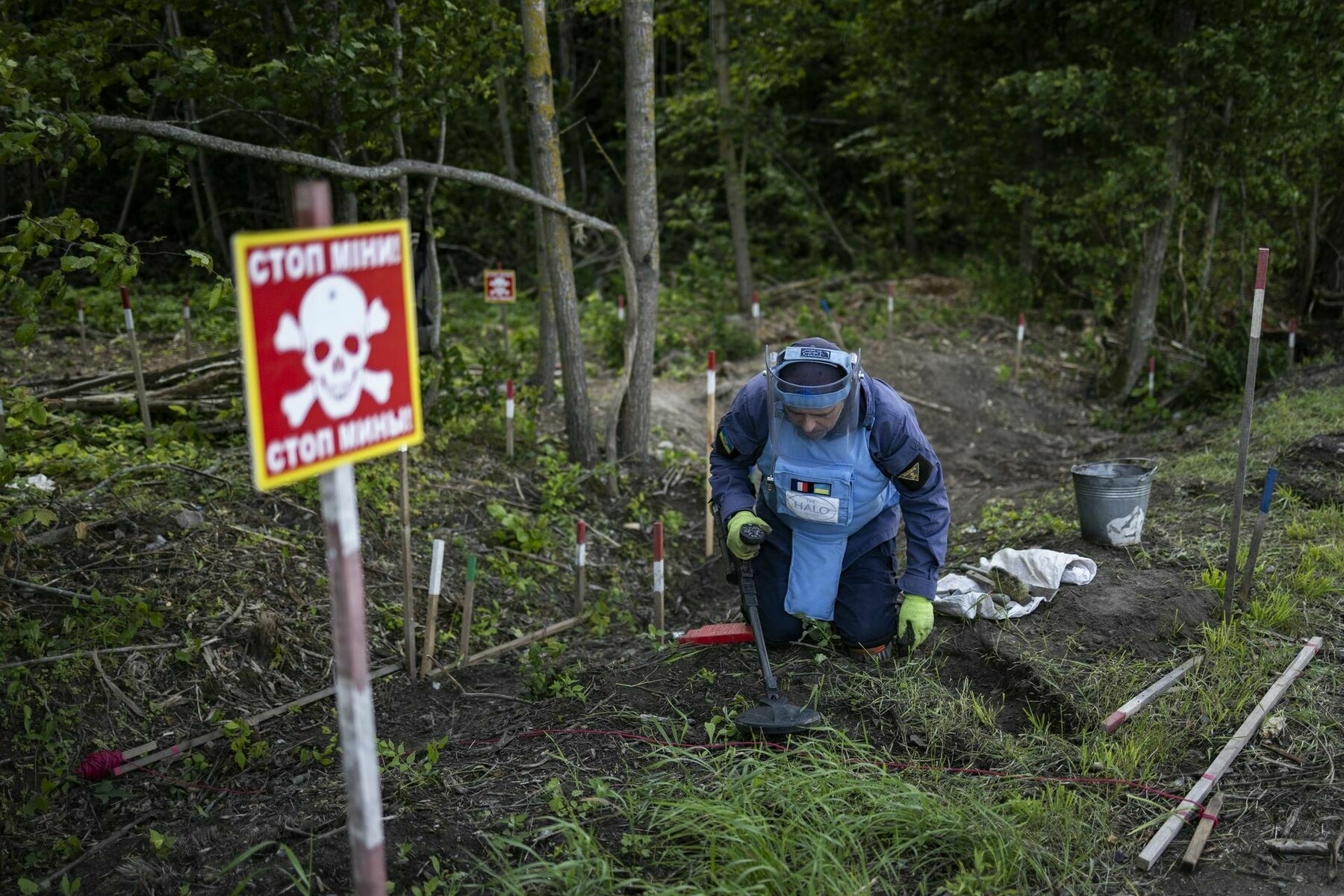
Lithuania and Finland plan to begin domestic anti-personnel mine manufacturing in 2026, with some of the supplies potentially earmarked for Ukraine to counter the Russian threat, Reuters reported on July 9.
The two NATO members will begin manufacturing once they complete withdrawal from the 1997 Ottawa Convention banning such mines, a six-month process that underscores Europe’s shifting defense priorities.
Ukrainian forces have increasingly relied on landmines for defensive operations, with Kyiv also withdrawing from the Ottawa Convention to “defend itself better against Russia.”
Lithuania plans to order tens of thousands of anti-personnel mines, spending “hundreds of millions of euros” on the weapons systems, Deputy Defense Minister Karolis Aleksa told Reuters.The Baltic country, which shares a 274-kilometer (170-mile) border with Russia’s Kaliningrad exclave and 679 kilometers (422 miles) with Russia’s close ally Belarus, will position its domestic industry as a primary supplier.
“Once production is established, Lithuania will be in a position to supply others including Ukraine,” said Vincas Jurgutis, head of Lithuania’s defense industry association, Reuters reports.
Lithuania’s parliament approved withdrawing from the Ottawa Convention banning anti-personnel mines on May 8, with the withdrawal taking six months to complete the full exit from the treaty.
Finland, which shares NATO’s longest border with Russia at 1,340 kilometers (833 miles), views domestic production as essential for supply security, aiming to increase defense spending to 3% of GDP by 2029.
In an interview with Reuters, Finnish parliamentary defense committee chair Heikki Autto called landmines “highly effective and very cost-efficient weapons systems” and confirmed Finland would consider supplying Ukraine.
“It is not only right and our duty to support Ukraine, it is also important for Finland’s own security,” Autto said.
Helsinki previously held over 1 million anti-personnel mines before joining the Ottawa treaty in 2011.
According to Reuters, the countries are relaunching production amid growing European fears that Russia’s military goals extend beyond Ukraine, prompting increased NATO defense spending as demanded by U.S. President Donald Trump.
In March, Estonia, Latvia, and Poland also announced their intention to withdraw from the Ottawa Convention, as the security situation in the region has “fundamentally deteriorated” and military threats to NATO member states bordering Russia and Belarus have “significantly increased."
These countries are not yet launching mine production, though they maintain manufacturing capabilities that could be activated if required.
Polish private munitions manufacturer ZSP Niewiadow told Reuters it intends to resume large-scale anti-personnel mine production by 2027, with new facility investments already underway.
Anti-personnel mines explode when triggered by contact or movement, threatening both soldiers and civilians long after conflicts end. Anti-mine groups have criticized the countries' decisions to abandon the treaty due to these lasting dangers.
Ukraine war latest: Trump reportedly pledges to send 10 Patriot missiles to Ukraine, asks Germany to send battery* Trump reportedly pledges to send 10 Patriot missiles to Ukraine, asks Germany to send battery * ‘They have to be able to defend themselves’ — Trump says US will send additional weapons shipments to Ukraine, criticizes Putin * EU to impose ‘toughest’ sanctions on Russia in coordination with US senators, French foreign minister says * Russia’s Black Sea Fleet shrinks presence in key Crimean bay, Ukrainian partisans say * Putin signs decree allowing foreigners to serve in Russian army during The Kyiv IndependentThe Kyiv Independent news desk
The Kyiv IndependentThe Kyiv Independent news desk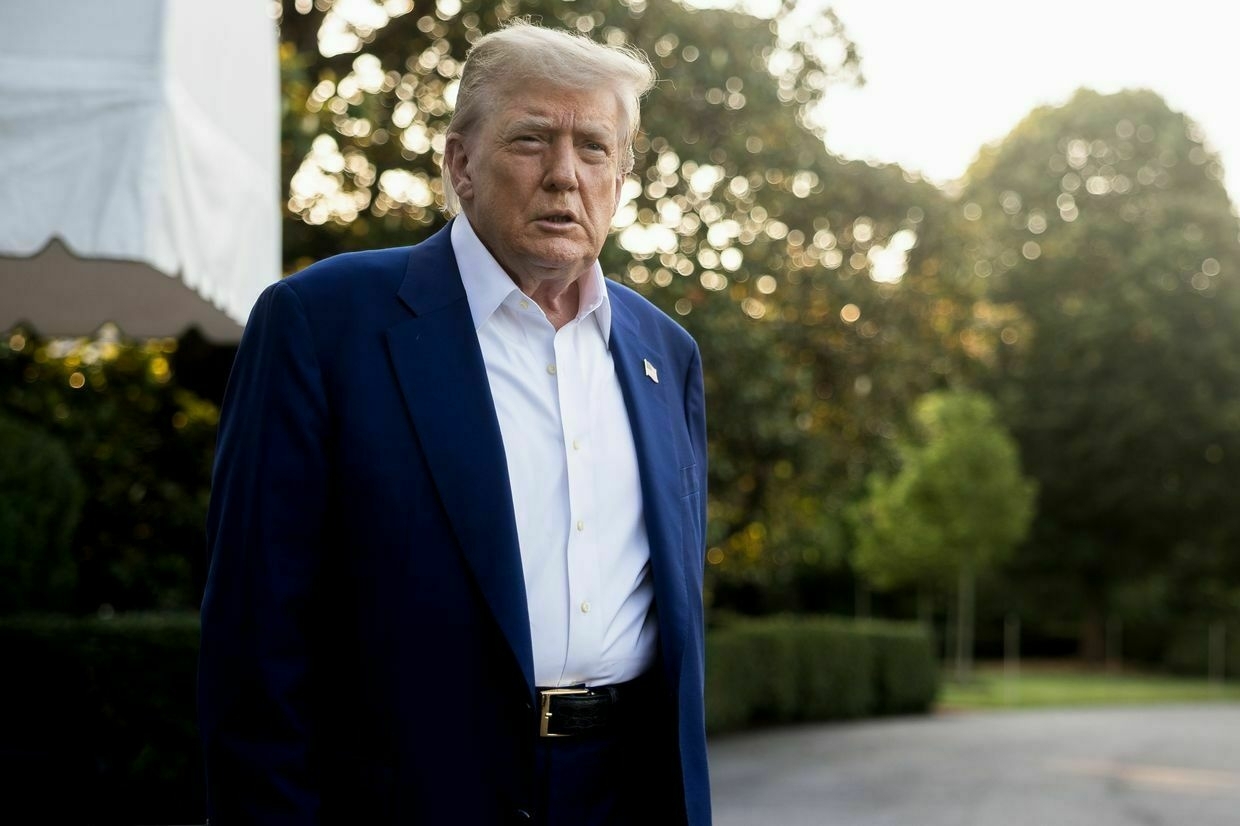
-
Russia eyes USAID-type development model to expand global influence, official says
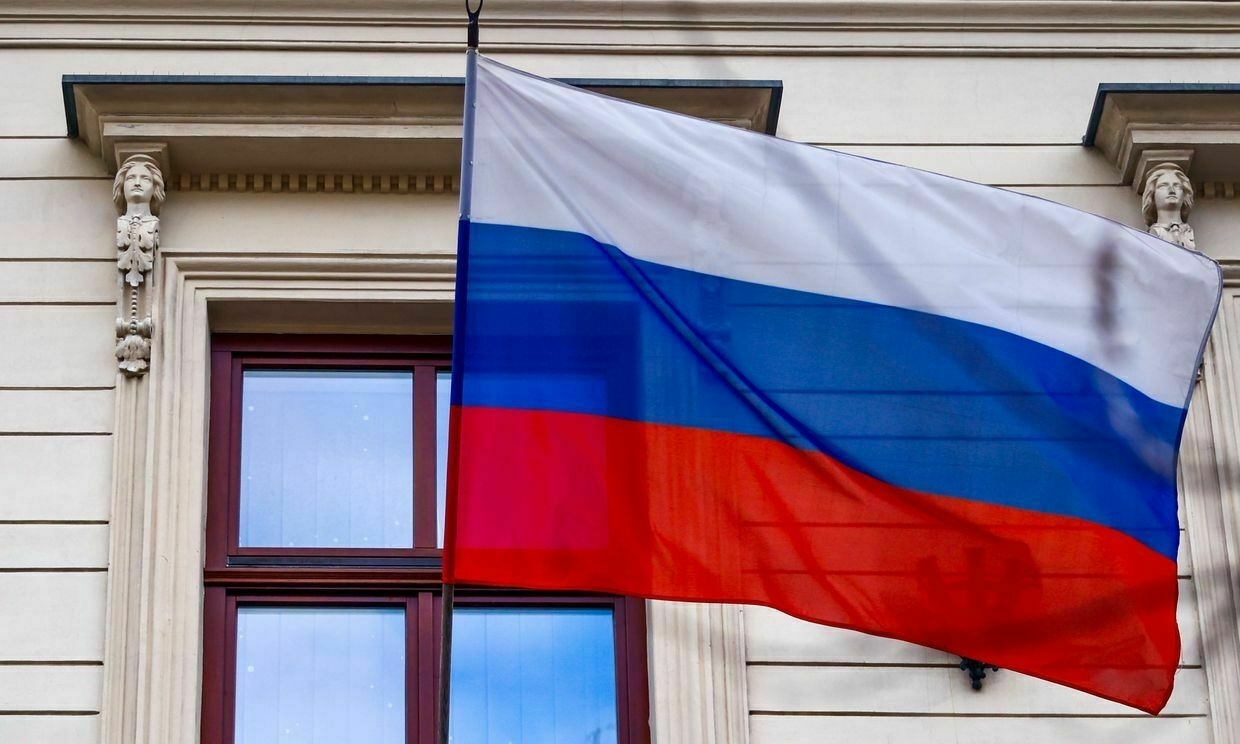
Russia is preparing to launch a U.S.-style international development agency to strengthen its global influence, the head of Russia’s foreign aid and cultural outreach arm, Yevgeny Primakov, said in an interview with the state-controlled RBC news outlet published on July 8.
The planned initiative would mirror aspects of the U.S. Agency for International Development (USAID), the chief U.S. foreign aid agency that was also seen as a tool of Washington’s soft power.
USAID officially stopped implementing foreign assistance as of July 1, following the Trump administration’s decision to dismantle the body.
Russia’s Foreign Ministry is currently drafting legislation that would establish a formal framework for international development efforts, Rossotrudnichestvo head Primakov said.
“We are counting on the next iteration of our agency,” said Primakov. “The Foreign Ministry is working on a draft law on international development assistance to create a format similar to USAID, which may or may not still exist. I’m not saying we’ll compete with USAID — we’d be happy to compete with Finland, for example, which has its own development agency."
According to Primakov, the lack of a dedicated legal mechanism for development work has slowed down Russian projects abroad.
Primakov also discussed his agency’s financial and operational challenges, including limited funding, rising logistics costs, and difficulties operating under international sanctions.
Rossotrudnichestvo’s budget has grown from 4.2 billion rubles in 2020 to 5.5 billion rubles today, he said, but a large portion is spent on rent, staff salaries, and building maintenance across more than 80 overseas offices.
Only about 25% of the agency’s budget is available for actual programming, Primakov said.
Among its ongoing efforts, Rossotrudnichestvo continues to distribute about 140,000 educational and literary books annually to libraries and universities abroad. Recent funding increases have also gone toward maintaining Russian military gravesites in countries such as Cyprus and Serbia.
Moscow forced USAID to leave Russia in 2012, accusing it of interfering in domestic affairs, particularly through its support for election monitoring and civil society groups. Now, with the U.S. retreating, Russia appears eager to fill the vacuum.
USAID sponsored many civil society projects and independent media in Eastern Europe. The initiative also helped organizations exiled from Russia and Belarus.
In Ukraine, USAID has provided $2.6 billion in humanitarian aid after Russia launched its large-scale invasion in 2022, as well as $5 billion in development assistance and more than $30 billion in direct budget support to Kyiv.
Hiding in plain sight — how Russia’s cultural centers continue to operate in US, Europe despite espionage claimsIn the video, Russian activist Anna Kiryakova reads from a book of poetry that glorifies her country’s war against Ukraine. The anthology’s title — “Poetry of the Russian Winter” — is written with the Latin Z in place of its Russian analog. The inclusion of that one letter aligns the book with the Kremlin’s pro-war narrative. Since Russia launched its full-scale invasion of Ukraine in February 2022, Z has become a pro-war symbol that many Ukrainians and opponents of the invasion equate with the The Kyiv IndependentLinda Hourani
The Kyiv IndependentLinda Hourani
-
US confirms Trump ordered resumption of Ukraine military aid shipments
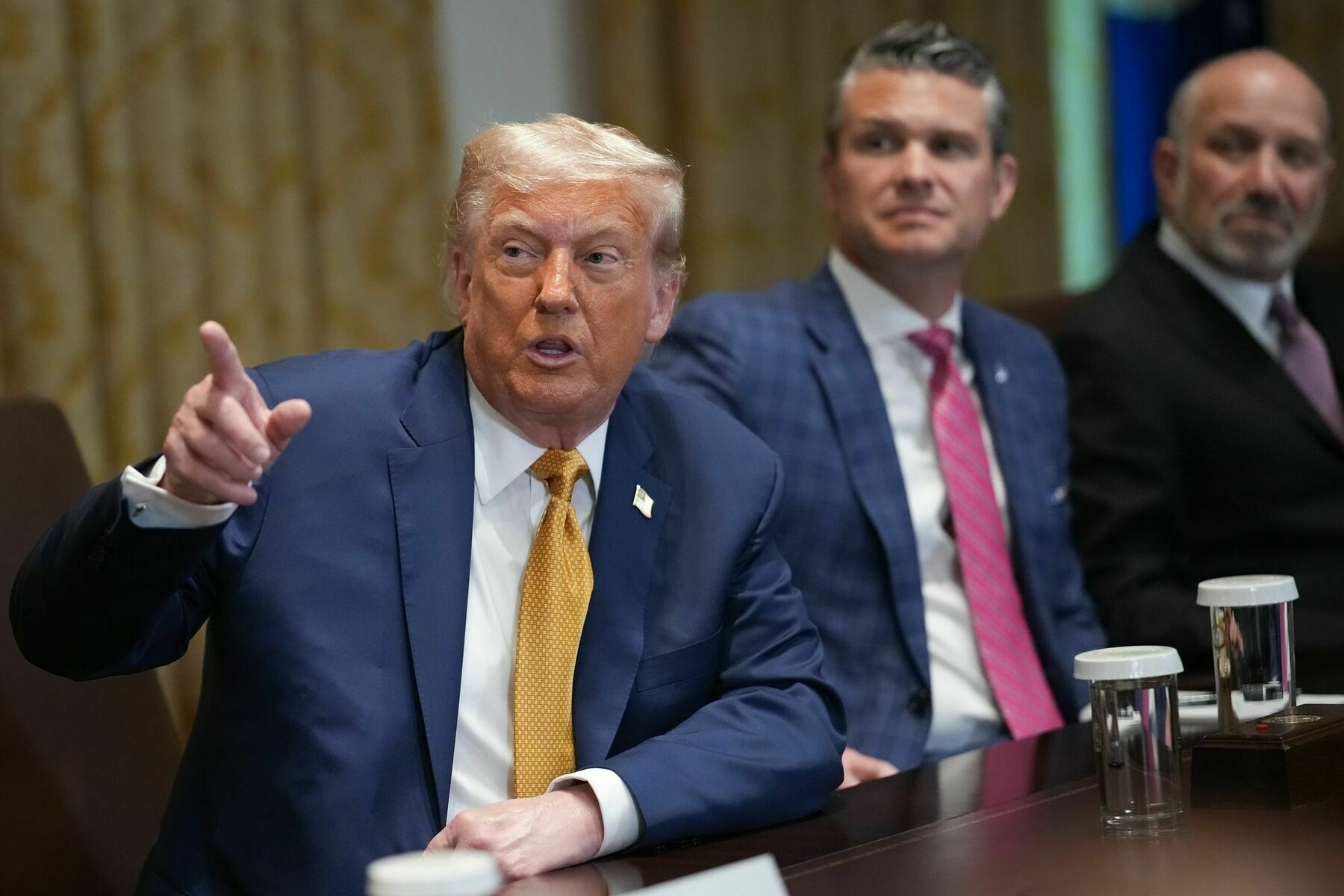
U.S. President Donald Trump has ordered the continuation of shipments of military aid to Ukraine after a brief pause earlier this month, the White House and the State Department confirmed on July 8.
“We have, of course, the resumption of shipments to Ukraine. The president has been vocal about this,” State Department spokesperson Tammy Bruce said during a press briefing on July 8.
The statement follows days of confusion and backlash after U.S. Defense Secretary Pete Hegseth reportedly authorized a temporary halt to American weapons deliveries on July 2 without notifying the White House, State Department, or U.S. allies.
Bruce emphasized that the temporary halt should not be viewed as a policy shift.
“We remain Ukraine’s biggest supporters,” she said. “We care about those people. We care about making sure they have what they need."
White House Press Secretary Karoline Leavitt told CNN that the decision to pause the shipments followed a Pentagon review “to ensure all support going to all foreign nations aligns with America’s interests.” She added that Trump “has full confidence in the secretary of defense” and had since decided to continue the shipments.
The U.S. president ordered Hegseth to renew the Ukraine-bound supplies, namely Patriot interceptors, shortly after learning about the pause last week, according to CNN.
Trump initially publicly denied the pause on July 4 and said the U.S. continues providing arms to Ukraine. The Pentagon subsequently issued a statement on July 7 confirming the renewed support.
“At President Trump’s direction, the Defense Department is sending additional defensive weapons to Ukraine to ensure the Ukrainians can defend themselves while we work to secure a lasting peace and ensure the killing stops,” the statement read.
The suspension affected a major aid package that included Patriot interceptor missiles, 155 mm artillery shells, Hellfire missiles, and other key munitions. Some of the equipment had already reached Poland and was en route to Kyiv when the pause took effect, according to NBC News.
The delay came as Moscow’s forces intensified aerial attacks against Ukraine, putting ever greater strain on Ukrainian air defense stockpiles. Russia launched its heaviest attack against Ukraine on July 9, launching over 740 drones and missiles.
Putin throws ‘a lot of bullsh*t’, Trump says as he ‘looks strongly’ at Russia sanctions billTrump also addressed U.S. legislation on sanctions, saying the Senate’s Russia sanctions bill was “totally optional” for him to implement or terminate. “I’m looking at it very strongly,” Trump said. The Kyiv IndependentAnna Fratsyvir
The Kyiv IndependentAnna Fratsyvir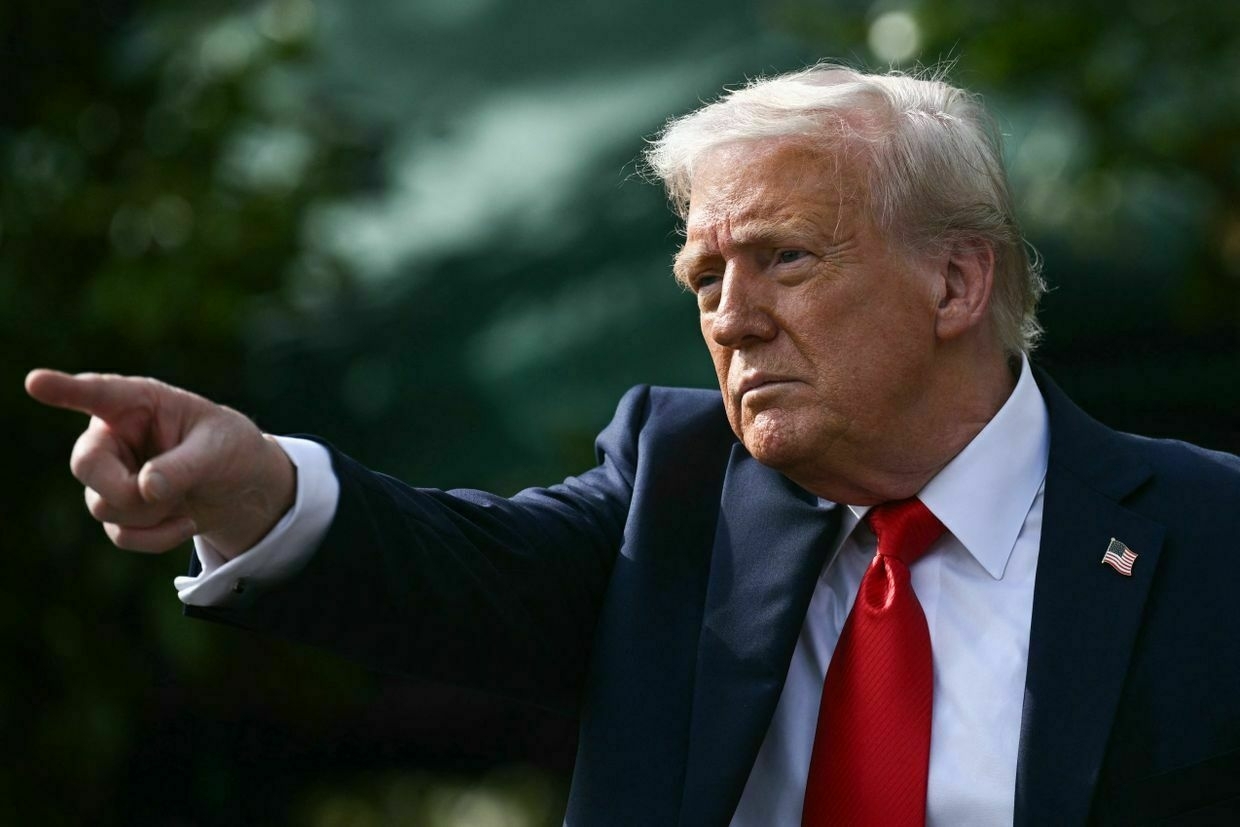
-
Hegseth reportedly authorized Ukraine weapons shipment pause without informing White House
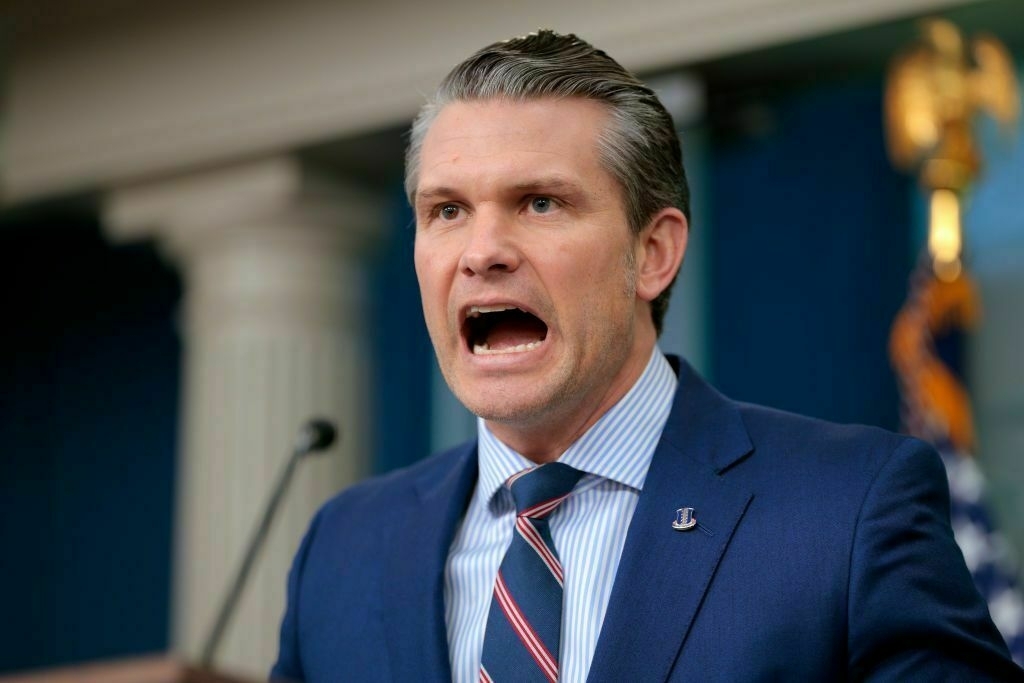
U.S. Secretary of Defense Pete Hegseth authorized a temporary halt to American weapons shipments to Ukraine early in July without notifying the White House, CNN reported on July 8, citing five undisclosed sources.
The pause, approved on July 2, affected a package that included Patriot interceptor missiles, 155 mm artillery rounds, Hellfire missiles, Stinger and AIM air-to-air missiles, and other key munitions.
Some of the weapons had already reached Poland and were en route to Kyiv when the shipment was stopped, according to NBC News.
When asked by a reporter on July 4 about the pause in U.S. weapons shipments to Ukraine as he prepared to board Air Force One, U.S. President Donald Trump denied any suspension, saying, “We haven’t (paused the shipments). We’re giving weapons."
The move reportedly stunned national security officials, the State Department, Congress, and U.S. allies in Europe. According to CNN, Hegseth did not consult with Secretary of State Marco Rubio or U.S. special envoy to Ukraine Keith Kellogg prior to the decision. Both officials reportedly learned of the pause from media reports.
Hegseth’s decision was reportedly influenced by a recommendation from Undersecretary of Defense for Policy Elbridge Colby, a long-time critic of large-scale aid to Ukraine.
Colby’s proposal was approved by Deputy Defense Secretary Steve Feinberg before Hegseth gave final signoff. Sources told CNN that Hegseth, who currently lacks a chief of staff or senior advisers, believed the move aligned with Trump’s “America First” priorities.
White House press secretary Karoline Leavitt told CNN the decision was part of a Pentagon review “to ensure all support going to all foreign nations aligns with America’s interests.” She emphasized that Trump had since ordered the resumption of the shipments and “has full confidence in the secretary of defense."
The delay came days before one of the biggest Russian missile barrages against Ukraine this year. On July 4, Russian strikes killed at least two people and injured 23 in Kyiv, prompting President Volodymyr Zelensky to renew calls for additional air defense systems. He has described the U.S.-supplied Patriot systems as “real defenders of life."
A senior U.S. military review had concluded the weapons shipment would not jeopardize American military readiness. NBC News reported that while some precision munitions stockpiles were low, they remained above critical thresholds.
“This justification is disingenuous,” Adam Smith, the top Democrat on the House Armed Services Committee, said. His staff reviewed the Pentagon’s figures and found no emergency-level depletion of stockpiles.
State Department spokesperson Tammy Bruce addressed the confusion on July 8, saying the pause should not be interpreted as a shift in policy.
“We remain Ukraine’s biggest supporters. We care about those people. We care about making sure they have what they need,” Bruce said. She confirmed the resumption of arms deliveries and noted Trump’s “very strategic” call with Zelensky.
According to CNN, Trump quickly reversed course upon learning of the pause. He instructed Hegseth to resume at least part of the shipment, including Patriot missiles. In a call with Zelensky on July 4, the president reportedly downplayed his role in the delay.
Zelensky described the call as “the best conversation in all this time."
How to enter Ukraine’s defense market: A short guide for foreign companiesEditor’s Note: The opinions expressed in the op-ed section are those of the authors and do not purport to reflect the views of the Kyiv Independent. For editorial coverage of Ukraine’s weapons procurement, the country’s Defense Ministry and the scandal-ridden Defense Procurement Agency click on the links below. * Old guard pushback continues to haunt Ukraine’s arms procurement cleanup * Defense Minister Umerov dismisses top official who stood up to him * Deputy defense minister resigns foll The Kyiv IndependentVladyslav Bandrovsky
The Kyiv IndependentVladyslav Bandrovsky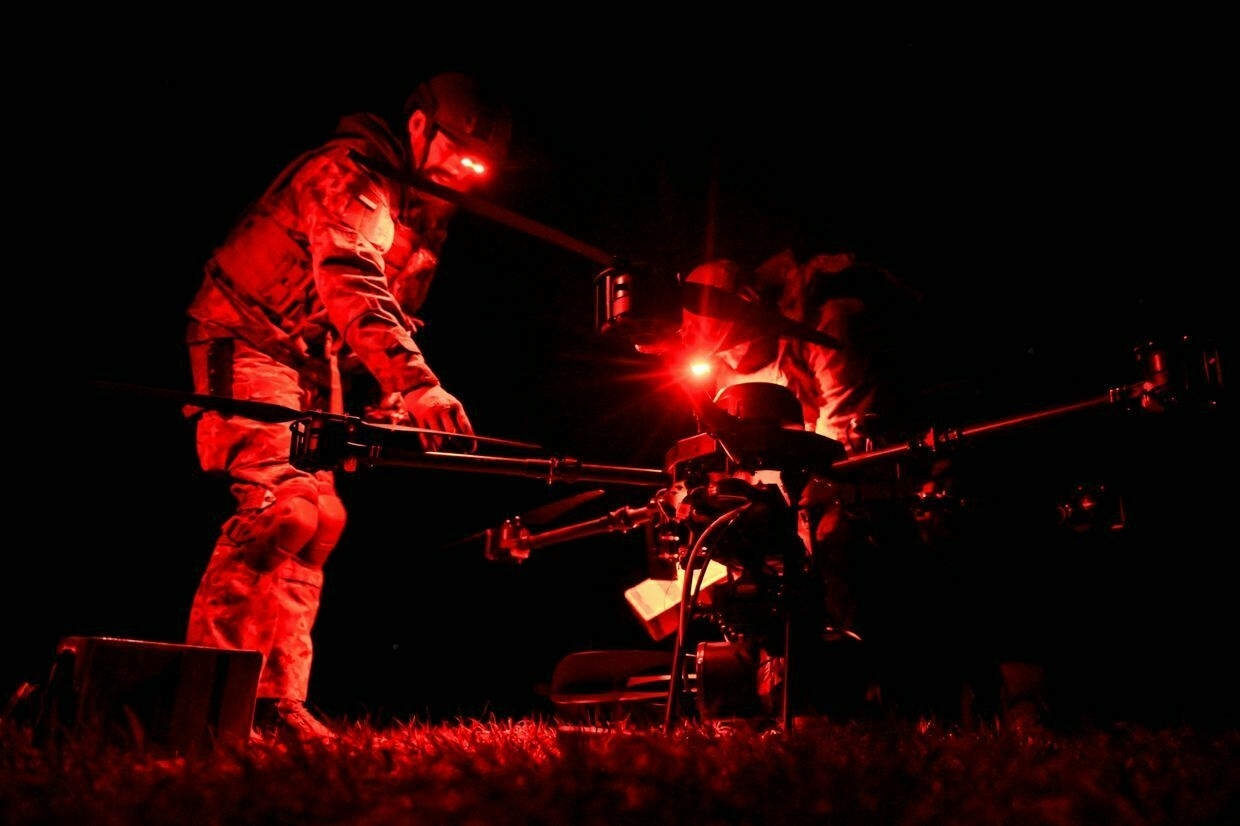
-
Trump claims he threatened Putin to 'bomb the sh*t out of Moscow' if Russia attacked Ukraine, CNN reports
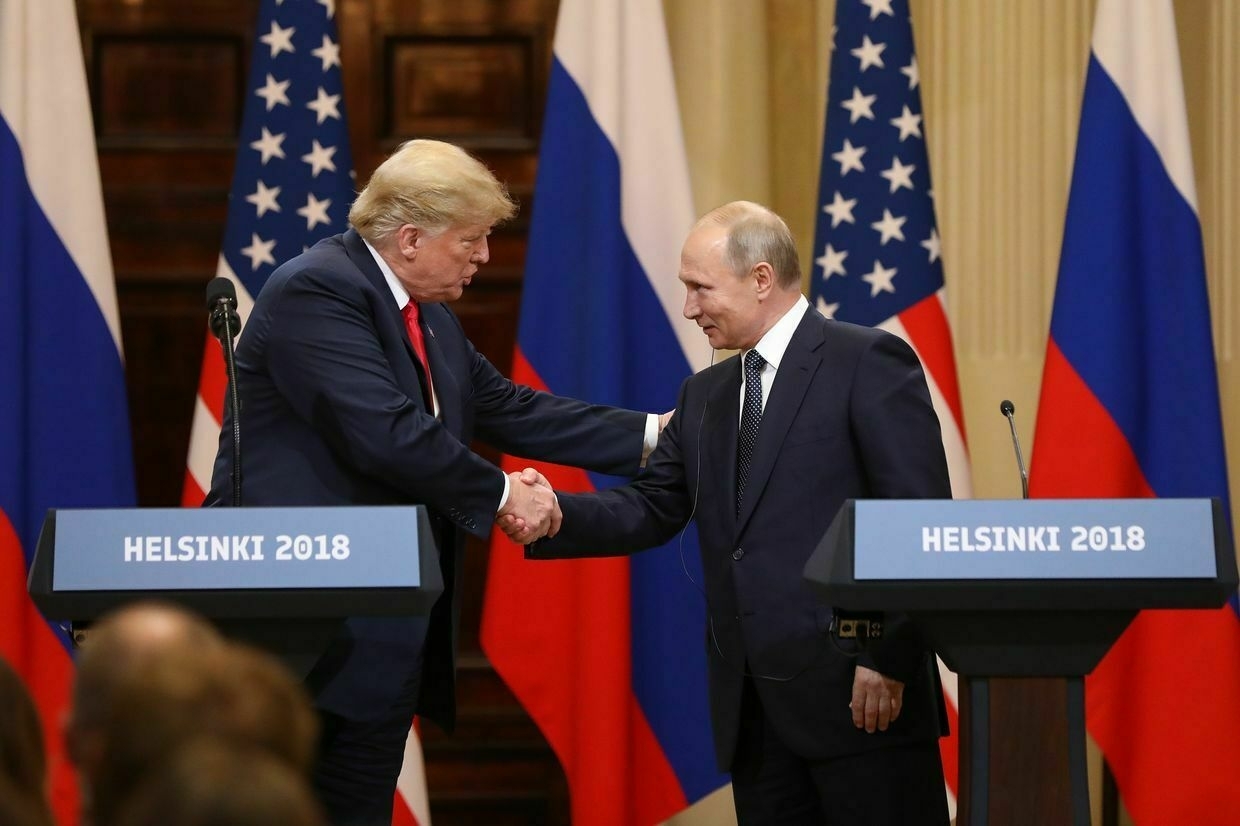
Donald Trump claimed during a private fundraiser last year he had threatened Russian President Vladimir Putin with bombing “the sht out of Moscow” if he attacked Ukraine, CNN reported on July 8, citing an obtained audio.
“With Putin I said, ‘If you go into Ukraine, I’m going to bomb the sht out of Moscow. I’m telling you I have no choice,'” Trump told a group of donors in 2024, according to CNN. It was not immediately clear at what time the alleged conversation between the two leaders took place.
“And then (Putin) goes, like, ‘I don’t believe you.’ But he believed me 10%.” Trump claimed he issued a similar warning to Chinese President Xi Jinping if he attempted to invade Taiwan.
U.S. President Trump has repeatedly claimed during his campaign trail that Russia’s all-out invasion of Ukraine in 2022 would have never happened if he were president at the time, laying the blame on ex-President Joe Biden.
Trump previously served as president from 2017 to 2021, during which time Russia was already occupying Crimea and waging war against Ukraine in Donbas.
While initially pledging to broker a swift peace deal between Kyiv and Moscow and boasting of warm ties with Putin, Trump has more recently adopted a more critical tone toward the Russian leader as peace talks stall and Russian aerial strikes escalate.
“We get a lot of bullsh*t thrown at us by Putin,” Trump said during a cabinet meeting on July 8. The U.S. president also signaled support for a major Senate sanctions bill against Russia and, reportedly, air defense supplies for Ukraine.
These developments contrast with a recent pause by the Pentagon on military aid shipments, including Patriot interceptors, heading for Ukraine, and with Trump’s earlier reluctance to exert additional pressure on Moscow.
Russian forces continue to escalate aerial strikes on Ukrainian cities, most recently hitting the western city of Lutsk and other areas overnight on July 9. Kyiv has urged its Western partners to step up support, namely in terms of sanctions and the provision of new air defenses.
Western city suffers ‘most massive’ strike of the war as Russia launches missiles, drones at UkraineRussia launched another mass missile and drone attack overnight on July 9, targeting Ukrainian cities, including in the country’s far-west regions located hundreds of kilometers from the front line. The Kyiv IndependentAbbey Fenbert
The Kyiv IndependentAbbey Fenbert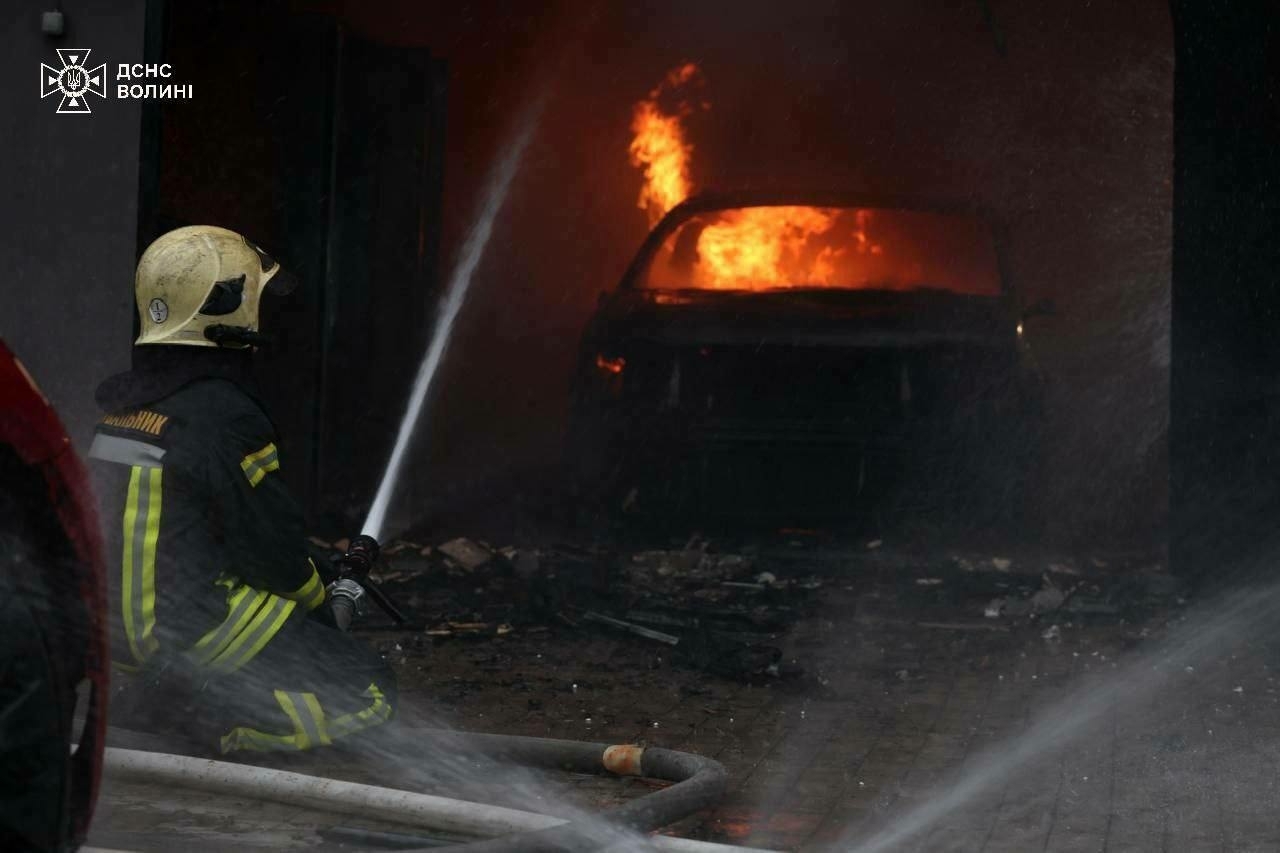
-
EU mulls creating 100 billion euro fund for Ukraine in next budget, Bloomberg reports
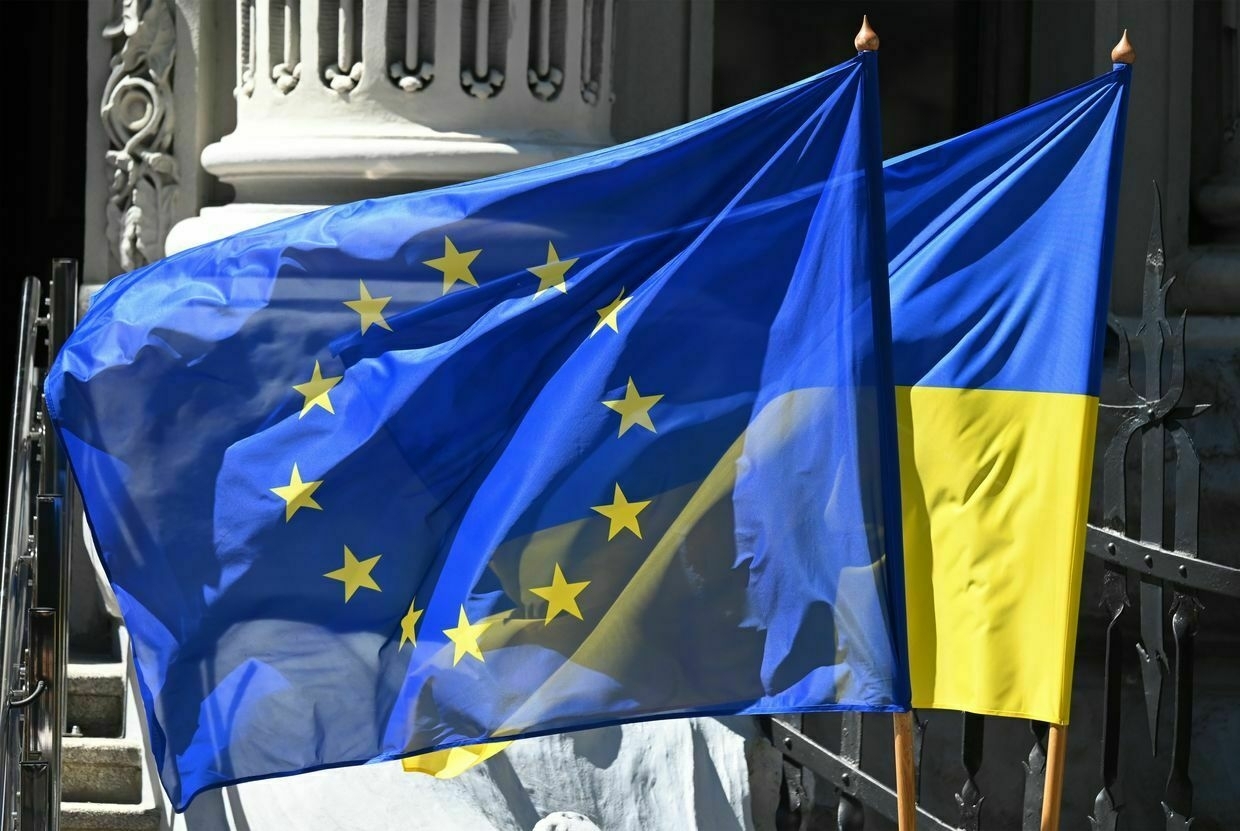
The European Union is considering establishing a fund for Ukraine worth 100 billion euros ($117 billion) in the next seven-year EU budget, Bloomberg reported, citing sources familiar with the proposal.
Sources told Bloomberg that the proposed funding, which is set to be presented later in July, would begin to be disbursed in 2028 as a means to provide additional assistance to the war-torn country amid waning U.S. support.
The proposal for an approximately 100 billion euro fund was previously touted by European Union Commissioner for Defense and Space, Andrius Kubilius, who called for the additional funding to be included in the seven-year EU budget in December 2024.
The fund, alongside other options, will be discussed before the Multiannual Financial Framework are released on July 16, according to Bloomberg.
Early in his second term as president, U.S. President Donald Trump repeatedly lambasted the EU for not providing an equal amount of support for Ukraine, urging the bloc to match spending on the war.
Since then, U.S. military and financial support have become unreliable, with contradictory statements coming out of the White House on additional military shipments in recent days.
On July 2 announced a halt in weapons shipments to Kyiv due to dwindling U.S. stockpiles, Trump later claimed he wasn’t responsible for the decision and wanted to send more weapons to Ukraine.
Axios reported on July 8 that the White House is pursuing a plan to have Germany sell another Patriot battery to Ukraine, with the U.S. and European allies splitting the cost of the purchase. Sources told the outlet that Trump also pledged to send 10 Patriot interceptor missiles to Kyiv.
As support from the U.S. remains unpredictable, European countries are looking into additional ways to how it can continue to support Ukraine.
The proposed new funding agreement would follow previous support provided through the European Commission through grants and loans.
Since the start of Russia’s full-scale invasion in February 2022, the EU has provided 160 billion euros ($187 billion) in aid to Ukraine. Along with Group of Seven (G7) countries, the EU has also provided loans as part of its $50 billion loan back by frozen Russian assets.
As Ukraine’s budget deficit continues to grow amid the full-scale war, the European Commission is also discussing with EU member states separate options to help Kyiv sustain its economy, the Financial Times reported on July 8. The deficit could range from $8 billion to $19 billion in 2026.
Ukraine’s 2026 budget could face $19B shortfall as Europe weighs how to fill the gap, FT reportsThe financial hole in Ukraine’s budget is linked to reduced U.S. support and the lack of prospects for a swift ceasefire with Russia that Europe had hoped for, the Financial Times reported.The Kyiv IndependentYana Prots
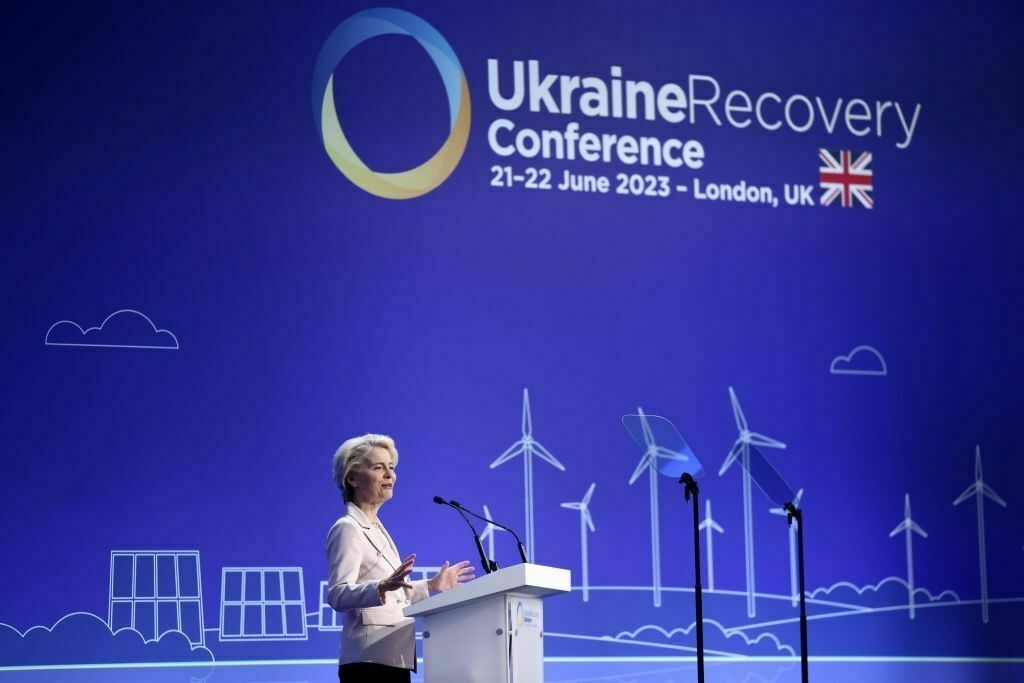
-
Russia launches mass missile, drone attack, targets Ukrainian cities far from front line
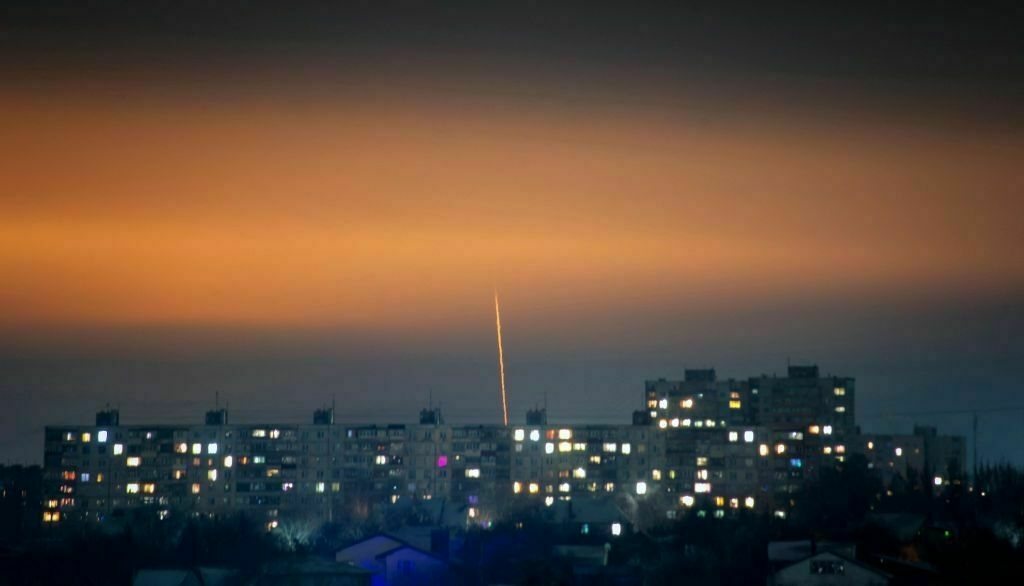
Editor’s note: This is a breaking story and is being updated.
Russia launched another mass missile and drone attack overnight on July 9 targeting Ukrainian cities, including in the country’s far-west regions, located hundreds of kilometers from the front line.
Late spring and early summer in Ukraine have been marked by disturbingly frequent mass attacks on civilian targets, with Russia regularly terrorizing cities with ballistic and cruise missiles alongside record-breaking numbers of kamikaze drones.
Ukraine’s Air Force warned late on July 8 that Russia had launched MiG-31 aircraft from the Savasleyka airfield in Nizhny Novgorod, putting the entire country under an active missile threat. Swarms of drones were also heading towards multiple cities in Ukraine, the military said.
Explosions rocked Kyiv at around midnight on July 9, according to Kyiv Independent journalists on the ground. Mayor Vitali Klitschko announced that Russian drones were attacking the city center and that air defenses were shooting down targets.
Ukraine’s Air Force reported drones and missiles targeting Ukraine’s far-west regions with alerts of overhead drones approaching the western cities of Lutsk, Khmelnytskyi, and Ternopil.
Explosions were also reported in communities closer to the front line, including Dnipro, Sumy, as well as over Zaporizhzhia Oblast.
No information was immediately available on any damage or casualties.
Russian ballistics and kamikaze drones have targeted Kyiv and other Ukrainian cities with renewed ferocity, killing dozens of civilians and injuring hundreds more.
The renewed attacks on Ukraine comes as U.S. President Donald Trump has promised to send 10 Patriot interceptors to Ukraine, amid escalating tension between Trump and Russian President Vladimir Putin.
“It’s a horrible thing, and I’m not happy with President Putin at all,” Trump said. “I’m disappointed frankly that President Putin hasn’t stopped (the attacks),” Trump said on July 8. The comments come after the Pentagon halted air defense weapon shipments to Ukraine.
Ukraine war latest: Trump reportedly pledges to send 10 Patriot missiles to Ukraine, asks Germany to send battery* Trump reportedly pledges to send 10 Patriot missiles to Ukraine, asks Germany to send battery * ‘They have to be able to defend themselves’ — Trump says US will send additional weapons shipments to Ukraine, criticizes Putin * EU to impose ‘toughest’ sanctions on Russia in coordination with US senators, French foreign minister says * Russia’s Black Sea Fleet shrinks presence in key Crimean bay, Ukrainian partisans say * Putin signs decree allowing foreigners to serve in Russian army during The Kyiv IndependentThe Kyiv Independent news desk
The Kyiv IndependentThe Kyiv Independent news desk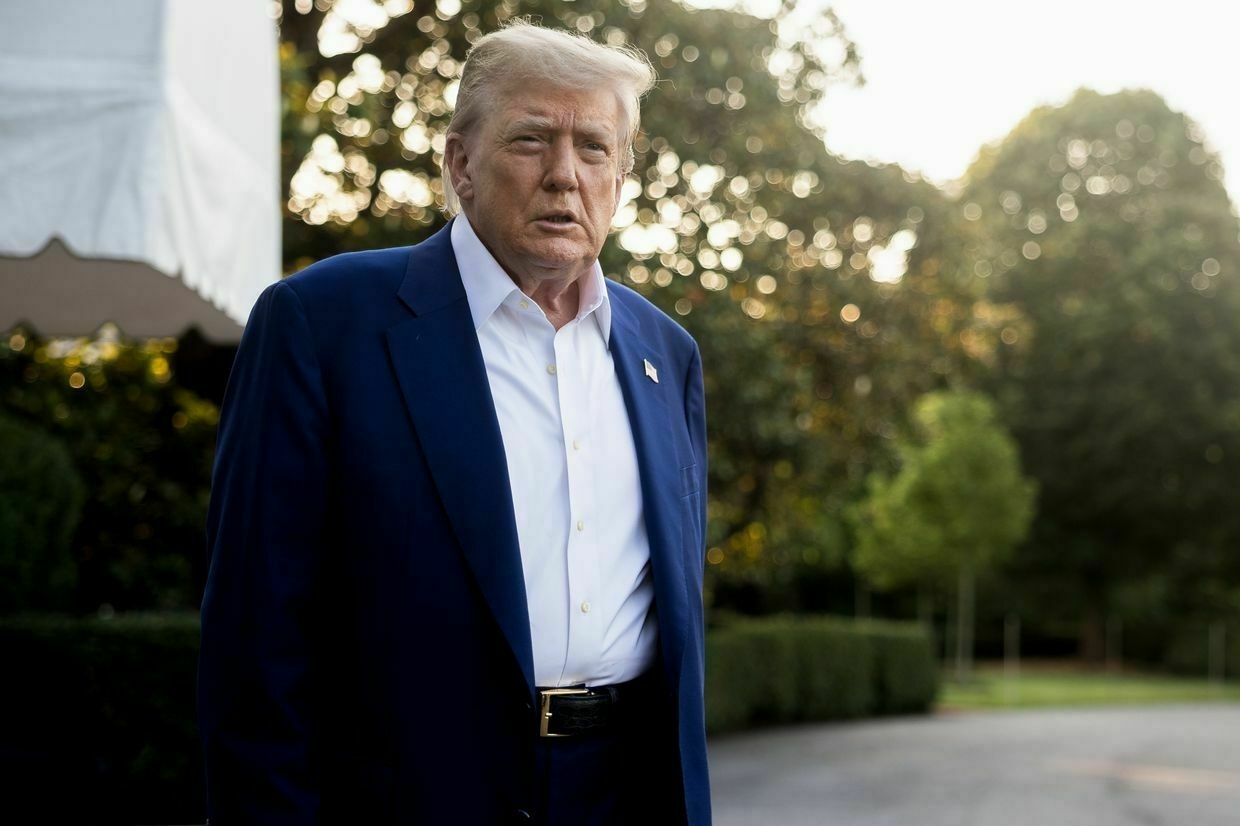
-
Trump mulls sending Kyiv another Patriot air defense system, WSJ reports
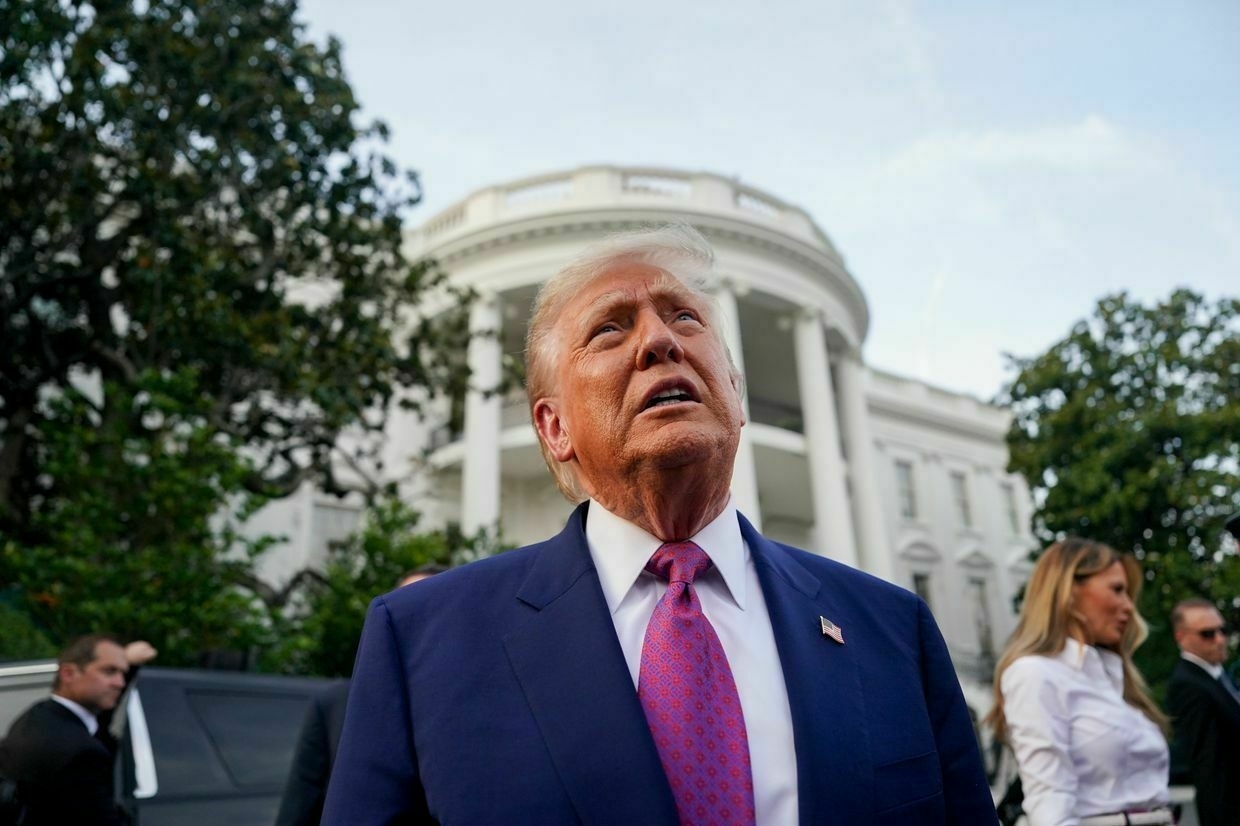
U.S. President Donald Trump is considering sending Ukraine an additional Patriot air defense system, a move that would mark his administration’s first major weapons transfer to Kyiv, the Wall Street Journal (WSJ) reported on July 8, citing two defense officials.
The report is the latest in a series of contradictory messages from the Trump White House in recent days regarding military aid to Ukraine. While the Pentagon on July 2 announced a halt in weapons shipments to Kyiv due to dwindling U.S. stockpiles, Trump later claimed he wasn’t responsible for the decision and wanted to send more weapons to Ukraine.
A U.S. defense official told the WSJ that Trump has asked the Pentagon to look into options for supplying Ukraine with more arms, including a Patriot air defense system. Officials are also reportedly exploring whether other nations can send Patriots to Kyiv.
The claim dovetails with recent media reports about the administration’s plans to bolster Ukraine’s air defenses. Axios reported on July 8 that the White House is pursuing a plan to have Germany sell another Patriot battery to Ukraine, with the U.S. and European allies splitting the cost of the purchase. Sources told the outlet that Trump also pledged to send 10 Patriot interceptor missiles to Kyiv.
If the U.S. provides Ukraine with an additional Patriot system, it would mark the first time Trump has approved a major military aid package to Kyiv that wasn’t previously greenlighted by former U.S. President Joe Biden.
Washington has thus far provided Kyiv with three Patriots, a former Pentagon official told the WSJ. Germany has also sent three, while a group of European countries provided one. According to the official, not all systems are in use at the same time due to maintenance issues.
The U.S.-made air defense systems are in high demand around the world. Each system consists of two or three launchers, a radar, a command and control element, and interceptor missiles. Patriot missiles are also in short supply globally: Ukraine faces an urgent need for the munitions amid increased Russian aerial attacks, and the Guardian reported on July 8 that even the U.S. has only 25% of the interceptors required by its defense readiness plans.
According to one of the officials who spoke to the WSJ, the U.S. military would be able to supply an additional Patriot to Ukraine if ordered by the White House.
Putin throws ‘a lot of b*llshit’, Trump says as he ‘looks strongly’ at Russia sanctions billTrump also addressed U.S. legislation on sanctions, saying the Senate’s Russia sanctions bill was “totally optional” for him to implement or terminate. “I’m looking at it very strongly,” Trump said. The Kyiv IndependentAnna Fratsyvir
The Kyiv IndependentAnna Fratsyvir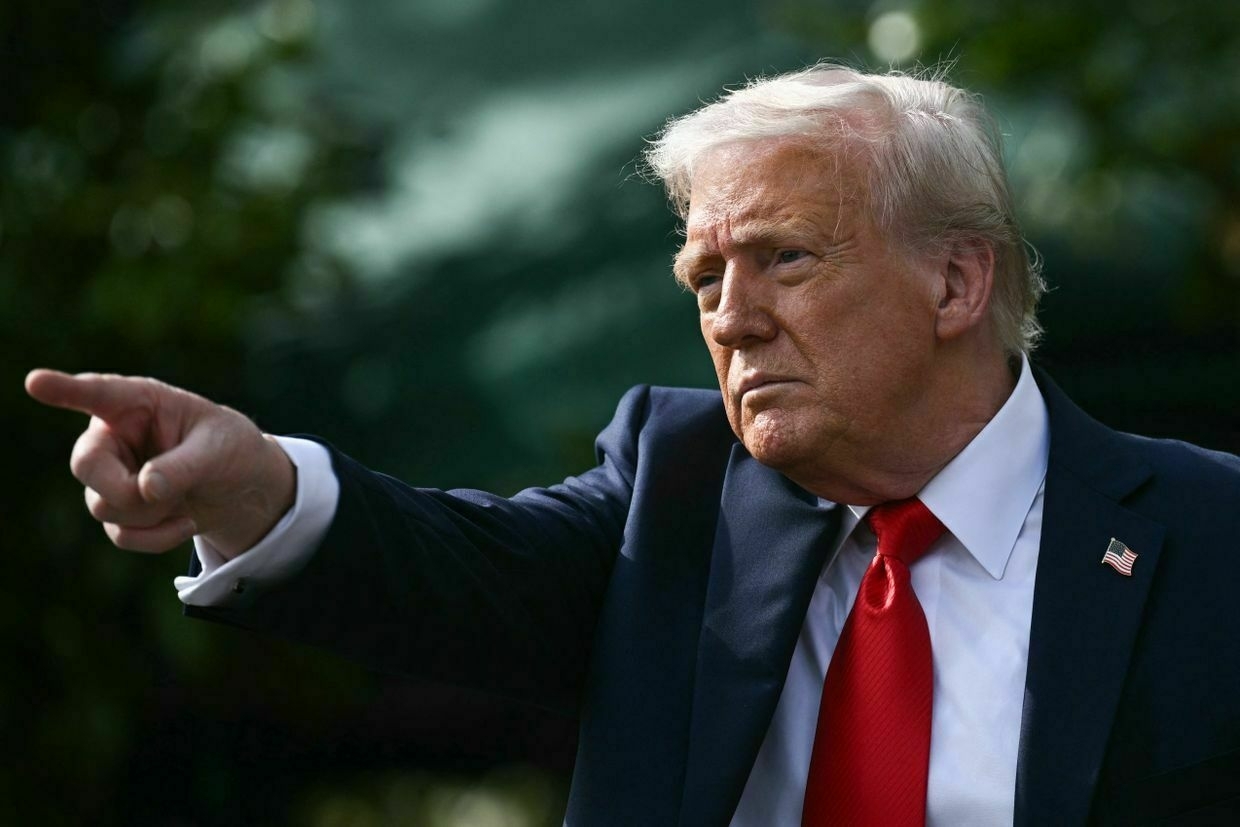
-
Ukraine synchronizes restrictions on Russia with EU sanctions
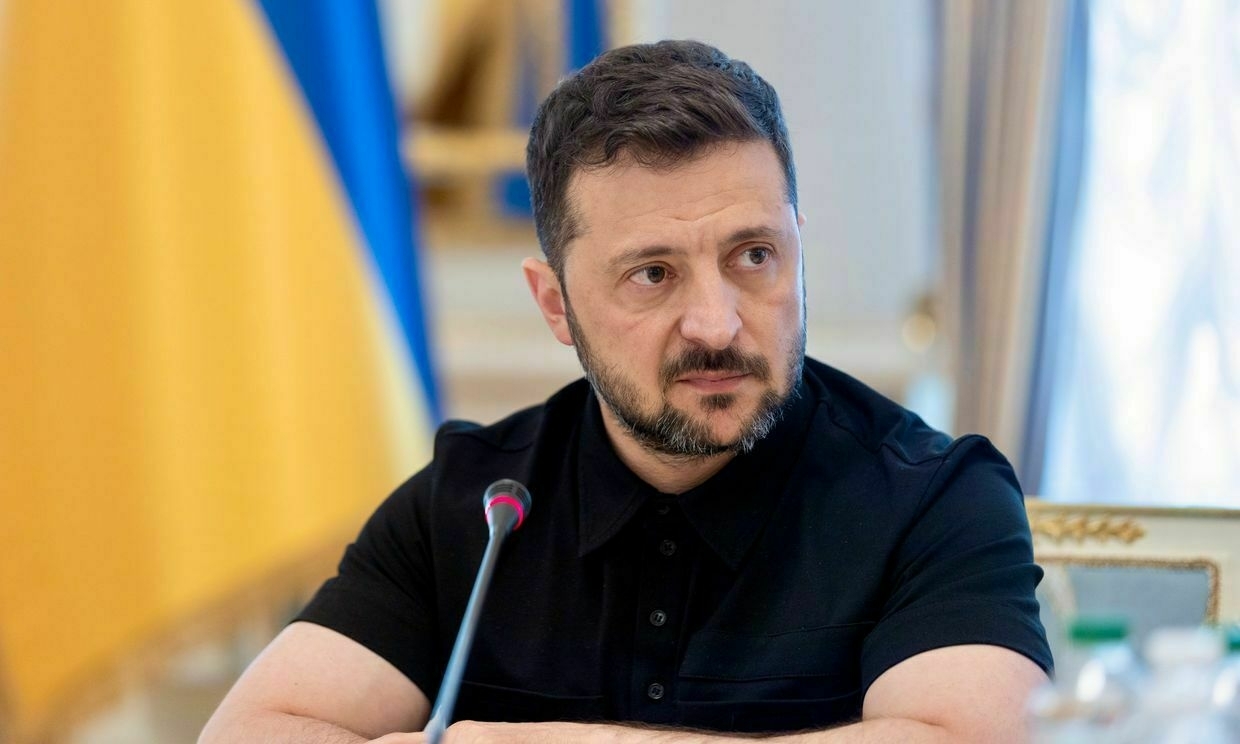
Ukraine has synchronized its sanctions against Russia with the last three packages of economic penalties imposed by the European Union, President Volodymyr Zelensky announced on July 8.
“Three more packages of EU sanctions are fully effective in Ukraine,” Zelensky said in his evening address.
Earlier on July 8, the president announced a new round of sanctions, including restrictions on five Chinese-registered companies accused of supplying components found in Russian Shahed-type drones used to attack Ukraine.
Vladyslav Vlasiuk, Zelensky’s sanctions commissioner, told reporters on July 8 that the latest decrees bring Ukrainian penalties in line with the EU’s 15th, 16th, and 17th packages of sanctions against Russia.
The 15th package targets individuals from Russia, Belarus, and China, among other countries, according to Vlasiuk. It includes the Russian pilot Alexander Azarenkov, who was involved in the deadly attack on the Okhmatdyt children’s hospital in Kyiv. Zelensky signed the sanctions decree on the one-year anniversary of the strike.
The 16th package includes individuals from Russia, China, Turkey, and other nations. It also targets the Voin Center, Russia’s military-patriotic education organization operating in occupied Ukrainian territories, and Pivdennyi Flot LLC, which transports Russian oil via its “shadow fleet,” Vlasiuk said.
The 17th package designates firms from Russia, China, Turkey, and other countries, including the gold-mining company Petropavlovsk and the Chinese company Skywalker Technology Co. Ltd, produce drone parts for Russia.
The EU is expected to approve its 18th package of sanctions against Russia later this week, after facing opposition from pro-Kremlin bloc members Slovakia and Hungary.
Ukraine has taken measures to coordinate sanctions with international partners in order to amplify pressure on Moscow. Zelensky on June 27 signed a decree to synchronize Ukraine’s sanctions against Russia with those imposed by the EU and Group of Seven (G7).
Ukraine war latest: Trump reportedly pledges to send 10 Patriot missiles to Ukraine, asks Germany to send battery* Trump reportedly pledges to send 10 Patriot missiles to Ukraine, asks Germany to send battery * ‘They have to be able to defend themselves’ — Trump says US will send additional weapons shipments to Ukraine, criticizes Putin * EU to impose ‘toughest’ sanctions on Russia in coordination with US senators, French foreign minister says * Russia’s Black Sea Fleet shrinks presence in key Crimean bay, Ukrainian partisans say * Putin signs decree allowing foreigners to serve in Russian army during The Kyiv IndependentThe Kyiv Independent news desk
The Kyiv IndependentThe Kyiv Independent news desk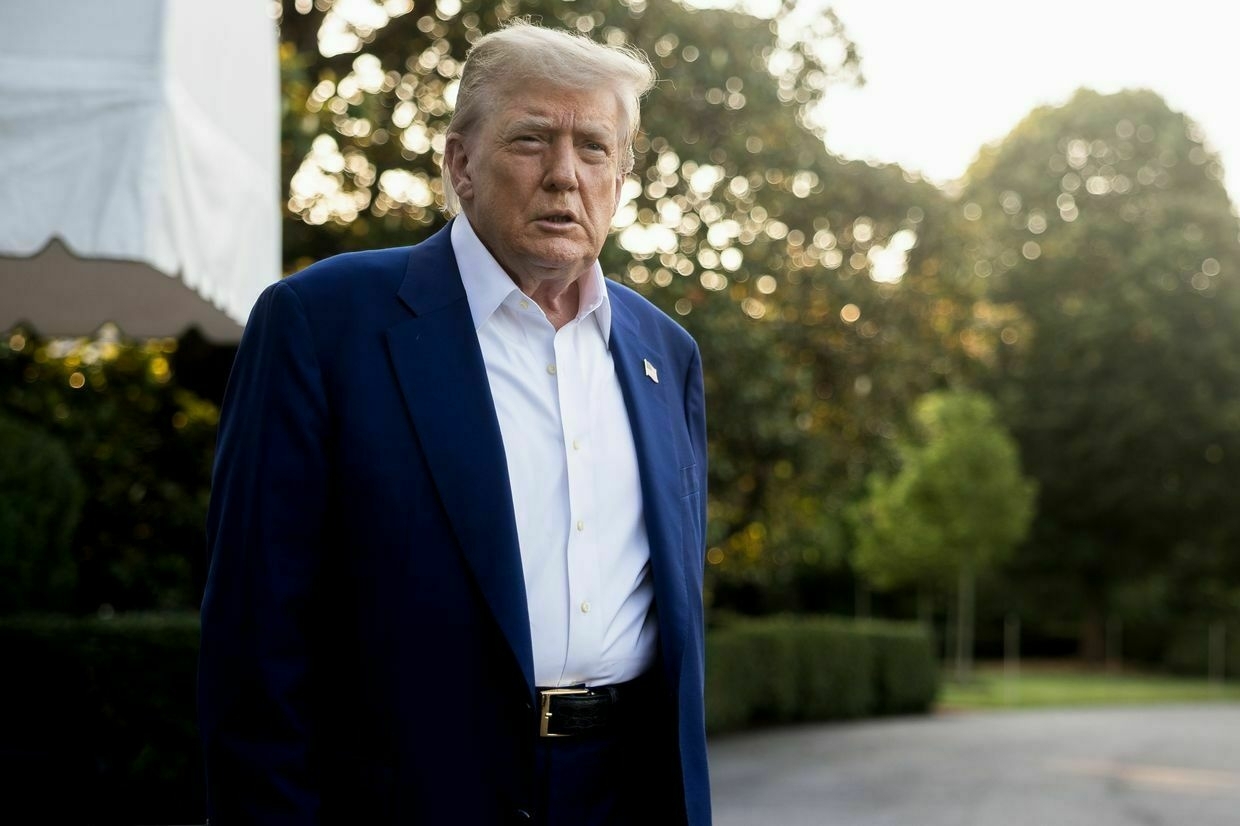
-
Ukraine's ambassador to US will be replaced, foreign minister confirms

Ukraine’s current ambassador to the United States, Oksana Markarova, will be replaced in the near future, Foreign Minister Andrii Sybiha confirmed in an interview with Ukrainian Radio on July 8.
Earlier on July 8, a source in the Presidential Office told the Kyiv Independent that President Volodymyr Zelensky had informed Markarova of her pending dismissal.
“We can expect about 20 decrees dismissing and appointing new heads of foreign institutions,” Sybiha said, specifically mentioning the U.S. as one of the planned replacements.
In his comments, Sybiha described Markarova as “one of our most successful ambassadors."
“She is extremely effective and charismatic, but surely every diplomat has a rotation cycle,” he said. “I can confirm that the Ukrainian president’s vision is to carry out rotations in all countries, both G7 and G20. That is, first and foremost, to strengthen these countries, in particular the U.S. track.”
Zelensky and Sybiha on June 21 announced plans to overhaul Ukraine’s diplomatic corps, teasing major personnel changes in a bid to secure better military aid packages and other support from international partners.
Zelensky discussed replacing Markarova specifically in a recent phone call with U.S. President Donald Trump, a source in the President’s Office told the Kyiv Independent on July 7.
There are multiple “strong candidates” in the running to replace Markarova, the source said. Prime Minister Denys Shmyhal, Deputy Prime Minister Olha Stefanishyna, Defense Minister Rustem Umerov, and Energy Minister Herman Halushchenko are among the candidates, Bloomberg previously reported.
Markarova has served as Kyiv’s ambassador to Washington since April 2021, and played a central role in coordinating U.S. military and financial support during the early phases of Russia’s full-scale invasion.
The announcement of her dismissal comes at a high-stakes moment in relations between Kyiv and Washington. The U.S. Defense Department recently paused shipments of critical weapons systems, including Patriot air defense missiles and precision-guided munitions, even as Ukraine faces intensifying Russian attacks.
Trump reportedly pledges to send 10 Patriot missiles to Ukraine, asks Germany to send batteryDuring the call with German Chancellor Friedrich Merz, U.S. President Donald Trump proposed that Germany sell one of its own Patriot batteries to Ukraine. The Kyiv IndependentAnna Fratsyvir
The Kyiv IndependentAnna Fratsyvir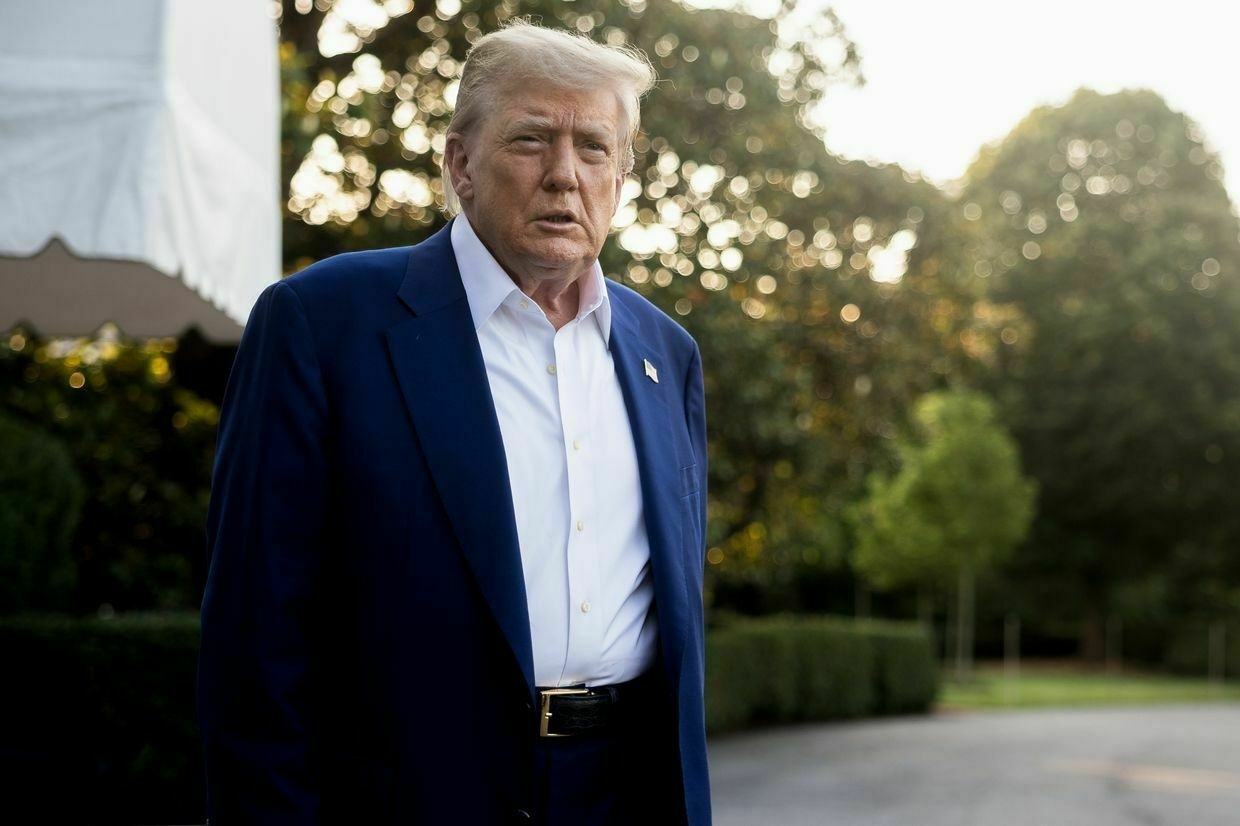
-
Trump’s new order – defensive arms to be supplied to Ukraine immediately
-
US only has 25% of Patriot missiles needed for war plans, Guardian reports
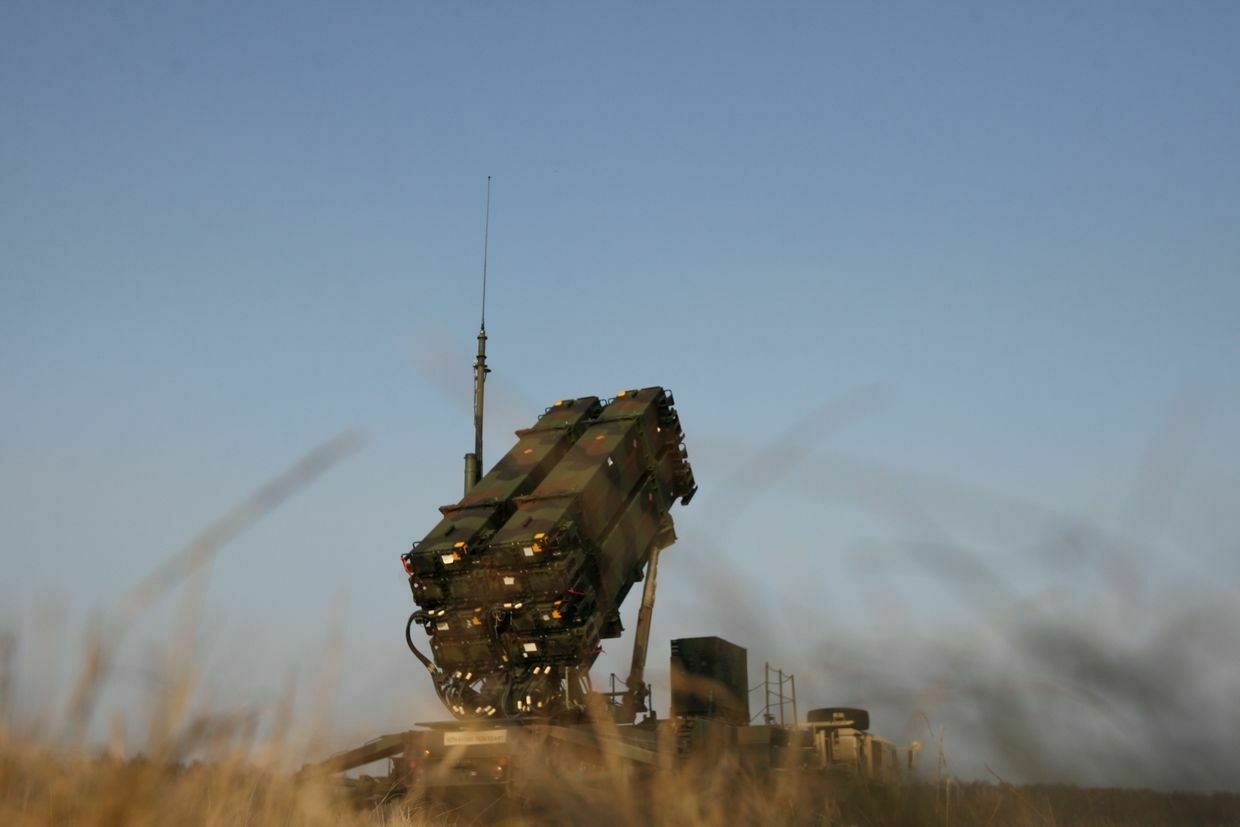
The United States has only about 25% of the Patriot missile interceptors it needs to meet Pentagon military plans, a shortage that led U.S. President Donald Trump’s administration to pause a major transfer of weapons to Ukraine, the Guardian reported on July 8.
The decision to halt the delivery, made on July 2, followed an internal review showing low stockpiles of critical air defense systems. The depletion was largely due to recent U.S. operations in the Middle East, including the interception of Iranian missiles after strikes on the American Al Udeid airbase in Qatar, according to the Guardian.
According to officials familiar with the matter, the Pentagon’s munitions tracker, used to measure the minimum supplies needed for U.S. war plans, showed Patriot interceptor levels had fallen below acceptable levels. That prompted concerns that sending more to Ukraine could put U.S. defense readiness at risk, the Guardian wrote.
The freeze reportedly affected Ukraine’s two key arms transfer methods: drawdowns from Pentagon stockpiles and the Ukraine Security Assistance Initiative (USAI), through which the Defense Department orders new weapons from contractors.
Because U.S. orders take priority, Ukrainian requests for new weapons, including Patriot missiles, face years-long delays.
The pause came at a critical time for Kyiv, as Russia intensifies large-scale aerial attacks on Ukrainian cities. With limited options to acquire precision-guided and other key munitions, Ukrainian forces have increasingly relied on Western-supplied air defenses to counter the growing threat.
For its latest aid package, the U.S. had planned to send dozens of Patriot interceptors, along with Hellfire missiles, air-to-air Sparrows, GMLRS rockets, and anti-tank weapons, according to the Guardian.
NBC News reported on July 4 that U.S. Defense Secretary Pete Hegseth unilaterally halted a weapons shipment to Ukraine despite internal military assessments showing the aid would not compromise American military readiness.
The assessment concluded that while some munitions stockpiles, including precision weapons, were low, they had not fallen below critical thresholds.
Amid the ongoing questions over Washington’s weapons pause, Trump has apparently promised to send 10 Patriot interceptors to Ukraine, Axios reported on July 8. Sources also told the Wall Street Journal (WSJ) that Trump claimed he wasn’t behind the decision to halt arms to Kyiv in a recent phone call with President Volodymyr Zelensky.
How to enter Ukraine’s defense market: A short guide for foreign companiesEditor’s Note: The opinions expressed in the op-ed section are those of the authors and do not purport to reflect the views of the Kyiv Independent. For editorial coverage of Ukraine’s weapons procurement, the country’s Defense Ministry and the scandal-ridden Defense Procurement Agency click on the linksThe Kyiv IndependentVladyslav Bandrovsky
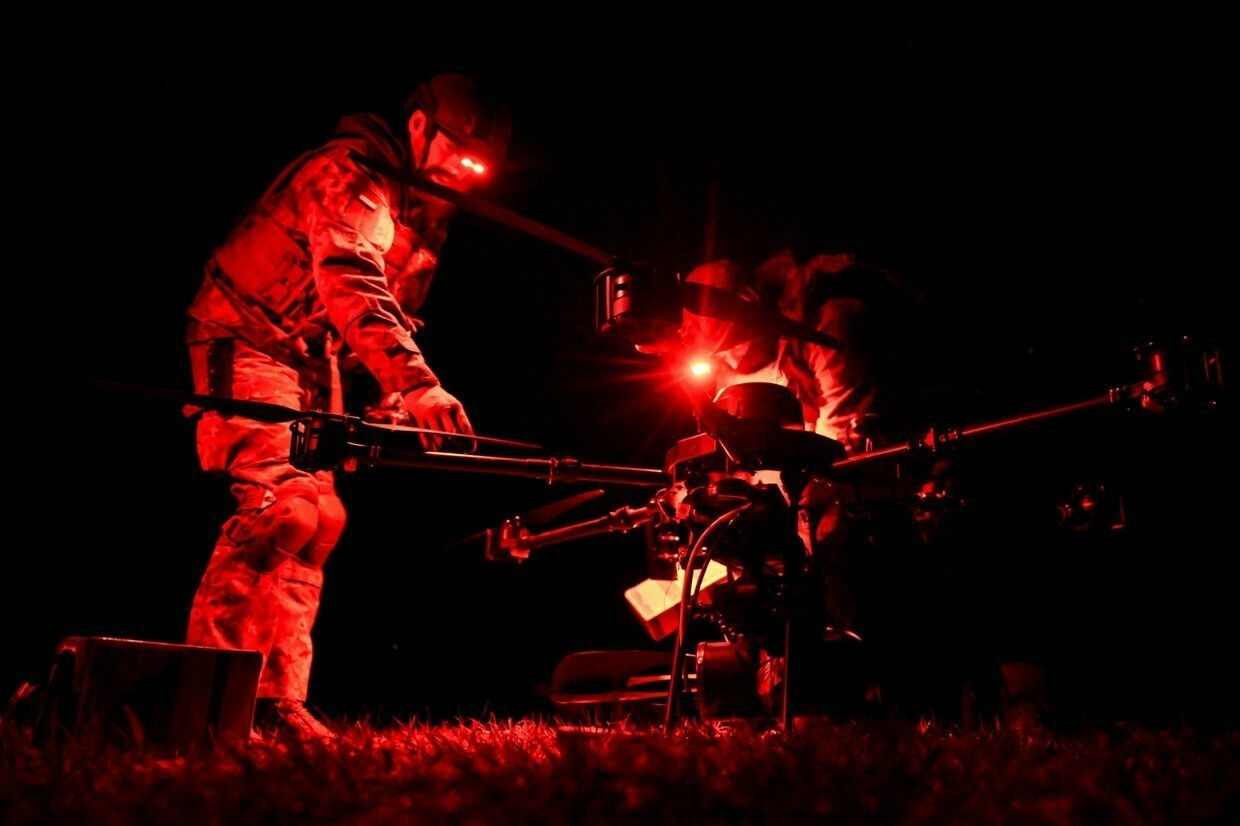
-
Ukraine war latest: Trump reportedly pledges to send 10 Patriot missiles to Ukraine, asks Germany to send battery
- Trump reportedly pledges to send 10 Patriot missiles to Ukraine, asks Germany to send battery
- 'They have to be able to defend themselves' — Trump says US will send additional weapons shipments to Ukraine, criticizes Putin
- EU to impose 'toughest' sanctions on Russia in coordination with US senators, French foreign minister says
- Russia's Black Sea Fleet shrinks presence in key Crimean bay, Ukrainian partisans say
- Putin signs decree allowing foreigners to serve in Russian army during mobilization
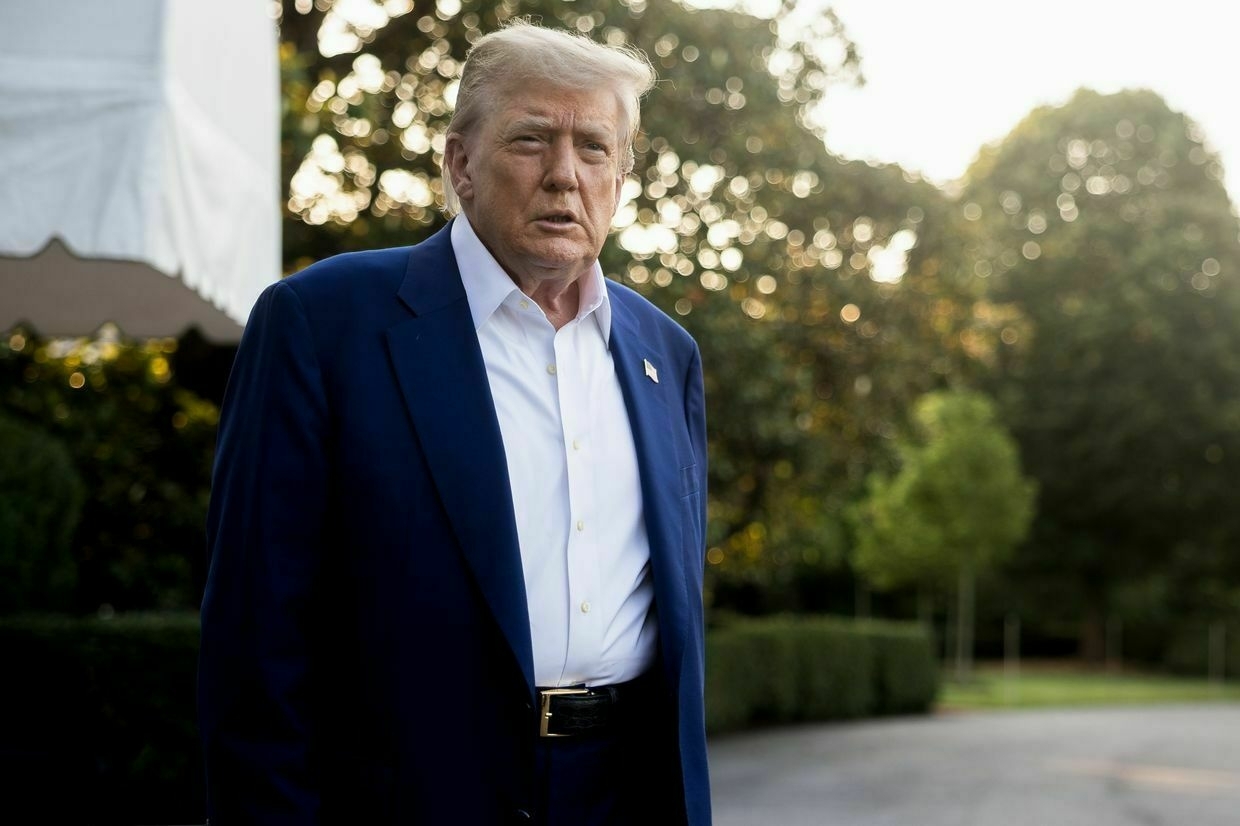
U.S. President Donald Trump has promised to send 10 Patriot interceptors to Ukraine - a smaller number than had been paused previously while en route to the country, Axios reported on July 8, citing its sources.
Trump has also suggested that Germany sell one of its Patriot batteries to Ukraine, according to three sources cited by Axios. They said the U.S. and European allies would split the cost of the purchase.
The discussion comes as Ukraine is calling upon its allies, particularly the United States, to support Ukrainian air defense by supplying "life-saving" Patriot systems and relevant missiles.
The Pentagon said on July 2 that some military assistance to Ukraine had been halted as the U.S. Defense Department conducts a review of foreign aid deliveries.
On July 7, the Pentagon said it would renew shipments, saying the additional defensive weapons were intended to help Ukraine protect itself while the U.S. works toward "a lasting peace."
Merz called Trump to request the release of the paused interceptors, according to Axios. During the call, Trump proposed that Germany sell one of its own Patriot batteries to Ukraine.
While no agreement has been reached, officials on both sides say negotiations are ongoing. German officials maintain that Berlin has already sent a higher share of its available Patriot systems to Ukraine than any other NATO country, including the U.S.
‘Some are forged into poets during hostilities’ — Medic, former POW, and poet on how war is shaping Ukraine’s writersBefore her harrowing footage of life in Mariupol under siege from Russian invaders was viewed around the world in 2022, Yuliia Paievska — call sign “Taira” — was already well known to Ukrainians for leading a volunteer medical unit in Donbas. Now, the volunteer, soldier, athlete, global activist, and former POW is being lauded once again – as a poet whose debut collection, Nazhyvo (Live), has captured audiences in Ukraine with its fervent writing, inspired by some of the war’s most brutal episo The Kyiv IndependentAndrea Januta
The Kyiv IndependentAndrea Januta
'They have to be able to defend themselves' — Trump says US will send additional weapons shipments to Ukraine, criticizes PutinThe United States will send "more weapons" to Ukraine amid intensified Russian strikes, U.S. President Donald Trump told reporters on July 7, adding that he is disappointed in Russian President Vladimir Putin.
"We're gonna send some more weapons we have to them, they have to be able to defend themselves, they're getting hit very hard now," Trump said alongside a U.S. and Israeli delegation at the White House.
The U.S. halted weapons shipments to Ukraine amid a capability review, the White House and Pentagon previously confirmed, with Trump later denying the pause.
Trump previously said he was disappointed in Putin for not making progress to end Russia's war against Ukraine, following a phone call between the two leaders on July 3.
On July 7, Trump again said he was unhappy with Putin for failing to cooperate with U.S. efforts to end the war in Ukraine.
"It's a horrible thing, and I'm not happy with President Putin at all," Trump said. "I'm disappointed frankly that President Putin hasn't stopped."
He noted that the additional assistance the U.S. will supply to Ukraine will mainly consist of defense weapons amid increased Russian attacks.
"They're getting hit very hard. We're gonna have to send more weapons, your defensive weapons primarily, but they're getting hit very, very hard. So many people are dying in that mess," Trump said.
Exclusive: Ukraine pitches US modernizes its largest oil refinery as part of minerals dealProjects Kyiv has submitted to the U.S. for consideration as part of a profit-sharing deal for Ukraine’s resources include a shelf and deepwater project and an oil refinery that comes under frequent attack by Russia, Ukraine’s Economy Minister Yuliia Svyrydenko told the Kyiv Independent in an interview published on July 7. After months of hard-fought negotiations around the investment agreement — known more widely as the “minerals deal” for its focus on Ukraine’s critical minerals — the two sid The Kyiv IndependentLiliane Bivings
The Kyiv IndependentLiliane Bivings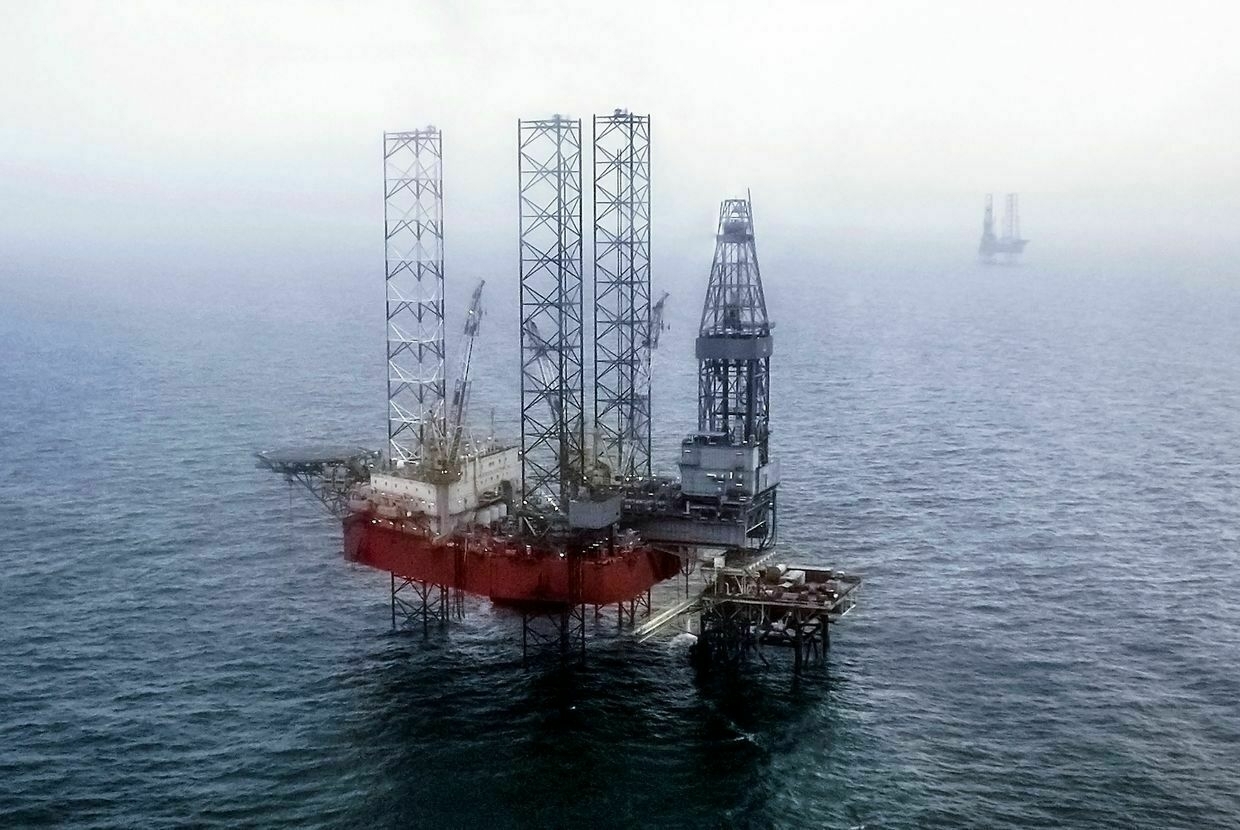
EU to impose 'toughest' sanctions on Russia in coordination with US senators, French foreign minister saysThe EU will introduce the "toughest sanctions... imposed (on Russia) in the last three years" in coordination with U.S. senators, French Foreign Minister Jean-Noel Barrot said in a television interview on July 7.
"(Russian President Vladimir) Putin is no longer advancing on the front and is now limited to shelling residential areas with drones and missiles. This is leading to numerous casualties among the civilian population. This must stop," Barrot said.
U.S. Senator Lindsey Graham said on June 29 that U.S. President Donald Trump was ready for the Senate to vote on a bill to impose new sanctions on Russia. The Republican senator has repeatedly called for implementing additional sanctions against Moscow.
Barrot noted the EU is planning to impose the strongest sanctions against Russia that the bloc has introduced since 2022.
"This (war) cannot continue; it must stop. To achieve this, in coordination with American senators, Europe is preparing to introduce, based on French proposals, the toughest sanctions we have imposed in the last three years," he said.
"They will directly deplete the resources that allow Vladimir Putin to continue his war," Barrot added.
In the U.S., senators have been working on a sanctions bill, with Graham saying voting on a bill is expected to begin following the end of the July congressional break.
Putin throws ‘a lot of b*llshit’, Trump says as he ‘looks strongly’ at Russia sanctions billTrump also addressed U.S. legislation on sanctions, saying the Senate’s Russia sanctions bill was “totally optional” for him to implement or terminate. “I’m looking at it very strongly,” Trump said. The Kyiv IndependentAnna Fratsyvir
The Kyiv IndependentAnna Fratsyvir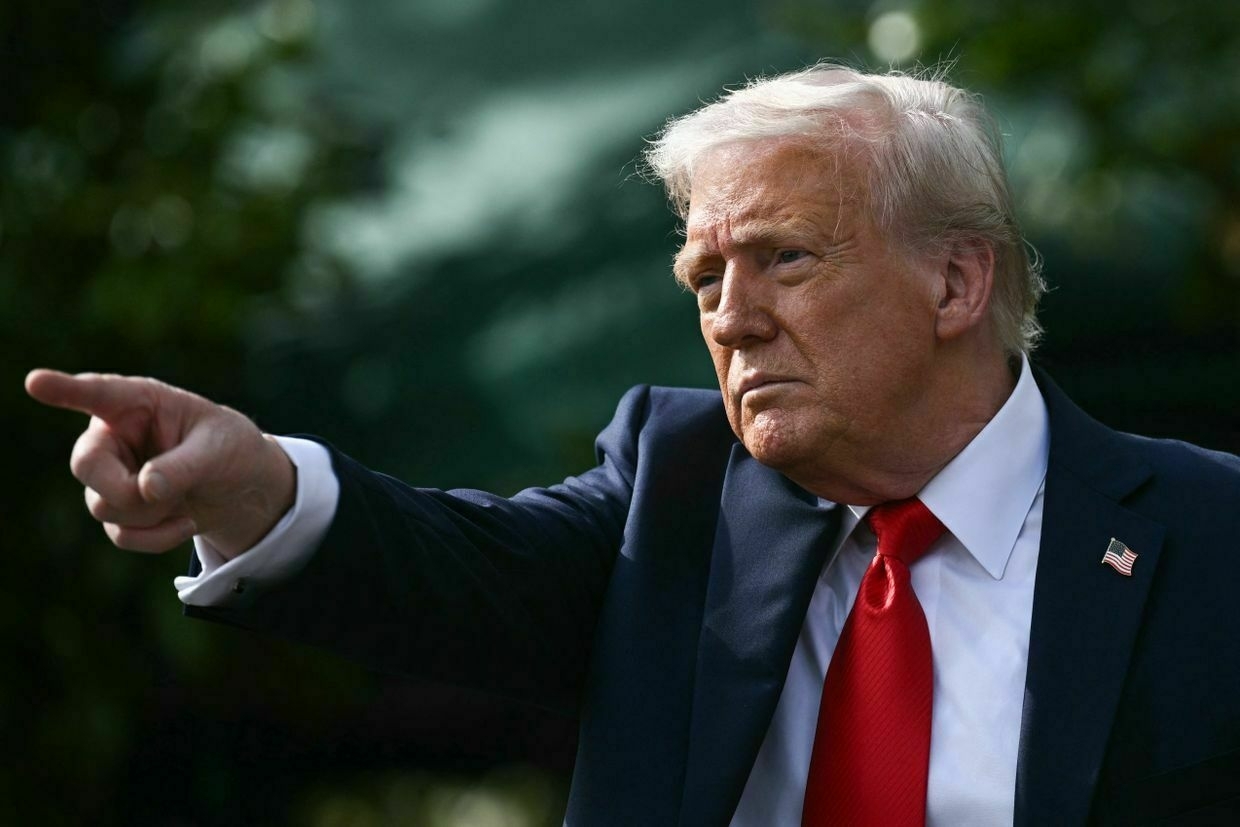
Russia's Black Sea Fleet shrinks presence in key Crimean bay, Ukrainian partisans sayStriletska Bay near Sevastopol, once a key base for Russian warships in occupied Crimea, is now nearly empty and used primarily for mooring tugboats and small patrol craft, the Atesh partisan group reported on July 8.
According to the group, Russia now uses the bay mainly for maintenance work and rare anti-sabotage defense drills, having pulled most major vessels from the area.
"Recently, the bay has been practically empty... The degradation of the occupation fleet in Sevastopol is becoming increasingly obvious. Striletska Bay, which previously housed a large number of combat vessels, is now idle." Atesh said.
The remaining combat units are periodically rotated and redeployed in an apparent effort to avoid detection by Ukrainian reconnaissance.
"Every object is under control — no ship will go unnoticed," Atesh said, adding that all ship movements are being tracked and shared with the Ukrainian Armed Forces.
Sevastopol has served as the base for Russia's Black Sea Fleet since the illegal annexation of Crimea in 2014. Repeated Ukrainian attacks using naval drones, missiles, and long-range drones have forced the Kremlin to reduce its naval presence in occupied Crimea.
Ukraine has destroyed several Russian vessels, including the Caesar Kunikov landing ship, the Sergei Kotov patrol ship, the Ivanovets missile corvette, and multiple high-speed landing crafts.
Putin signs decree allowing foreigners to serve in Russian army during mobilizationRussian President Vladimir Putin signed a decree on July 7 permitting foreigners to serve in the Russian army during periods of mobilization, expanding military recruitment efforts.
Putin's partial mobilization decree from Sept. 21, 2022, remains in force and has never been formally rescinded. Ending it would require a separate presidential decree specifying a termination date.
Previously, it was allowed only during states of emergency or under martial law. Despite its full-scale invasion of Ukraine, Russia has avoided formally declaring martial law.
According to the document, the Kremlin is also permitting qualified specialists who have reached the age limit to sign contracts with Russia's Foreign Intelligence Service (SVR), Federal Security Service (FSB), or other state security agencies.
The changes aim to strengthen recruitment as Moscow tries to keep up the pace of troop replenishment without causing another wave of unpopular conscription. The Kremlin has heavily relied on financial incentives and aggressive campaigns to attract new volunteers.
Moscow currently recruits 30,000 to 40,000 individuals into its army each month, sources familiar with U.S. and EU intelligence told the Wall Street Journal.
Note from the author:
Ukraine War Latest is put together by the Kyiv Independent news desk team, who keep you informed 24 hours a day, seven days a week. If you value our work and want to ensure we have the resources to continue, join the Kyiv Independent community.
Seeing war through the lens of narcissismWe usually think of narcissism as a personal flaw — a grandiose ego, a craving for attention, a lack of empathy. But what if narcissism is not just a diagnosis, but a lens? A way of understanding how individuals — and even entire nations — cope with wounds too painful to face directly?The Kyiv IndependentDr. Gary E Myers
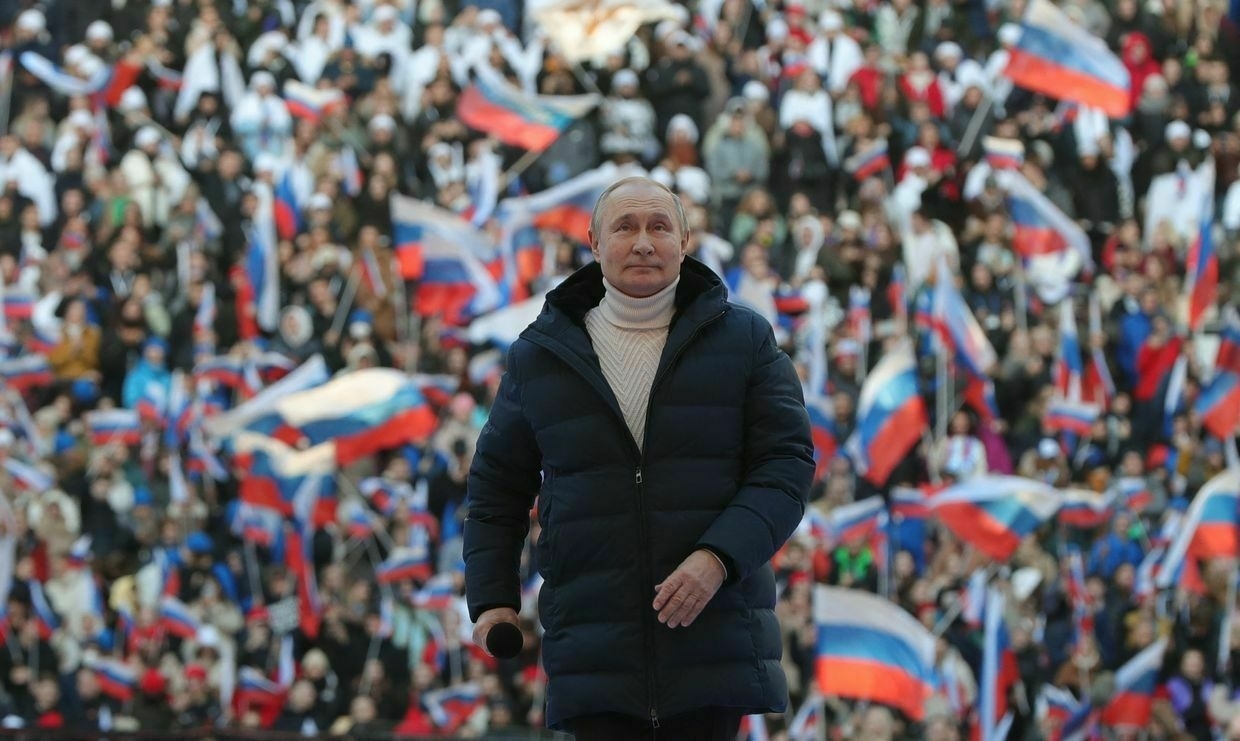
-
Trump’s major announcement: U.S. steps up support for Ukraine | NEWS PULSE
-
Putin throws 'a lot of b*llshit', Trump says as he 'looks strongly' at sanctions bill
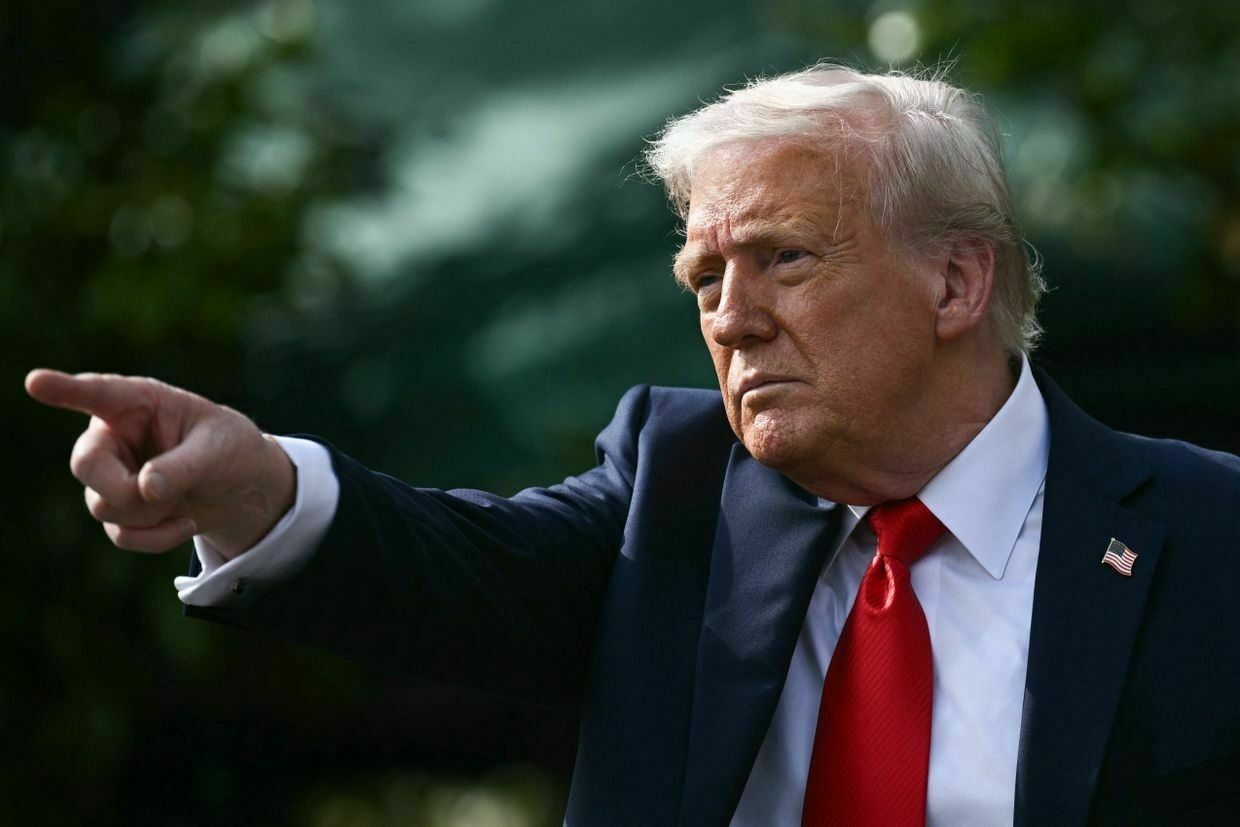
U.S. President Donald Trump said on July 8 he was “not happy” with Russian President Vladimir Putin.
“We get a lot of b*llshit thrown at us by Putin,” he said at a cabinet meeting. “He’s very nice all the time, but it turns out to be meaningless."
Trump has vacillated for months between criticizing Putin and praising the Kremlin. So far, he has failed to increase military aid to Ukraine or sanction Russia despite Moscow’s refusal to accept a ceasefire.
During his election campaign, Trump repeatedly pledged to end the war in Ukraine within “24 hours.” However, his efforts to broker a peace deal between Ukraine and Russia have seen no progress.
Trump also addressed U.S. legislation on sanctions, saying the Senate’s Russia sanctions bill was “totally optional” for him to implement or terminate.
“I’m looking at it very strongly,” Trump said.
The bill would impose 500% tariffs on imports from countries purchasing Russian oil, gas, uranium, and other products. It was introduced in April but has seen no progress since then.
Earlier, Trump signaled growing openness to tougher measures against Moscow, ABC News reported on June 29.
According to Senator Lindsey Graham, Trump privately told him it was “time to move” the Russia sanctions bill. The Senate is expected to vote on the bill after Congress returns from a break in July.
"(Putin is) killing a lot of people — his soldiers and their soldiers mostly. And it’s now up to 7,000 a week,” Trump said on July 8, referring to Russia’s battlefield losses.
In recent weeks, Trump has been critical of the Russian president. Following a phone call with Putin on July 3, Trump said he was “very disappointed,” signaling growing frustration with the Kremlin.
When asked by a journalist on July 8 whether he would take action, Trump responded: “Wouldn’t be telling you… We want to have a little surprise."
Trump also commented on the the current pause in weapons deliveries to Ukraine. He pointed to the previous transfer of advanced systems, including Javelin anti-tank missiles and Patriot air defense systems, calling them “the best equipment in the world."
His remarks come after the United States halted military aid shipments to Ukraine on July 2 amid an internal Pentagon review of stockpile capacity. The freeze coincided with a surge in Russian aerial attacks, leaving Ukraine increasingly vulnerable amid a shortage of U.S.-supplied air defense systems.
The U.S. halted weapons shipments to Ukraine amid a capability review, the White House and Pentagon previously confirmed, with Trump later denying the pause.
On July 7, the Pentagon said it would renew shipments, saying the additional defensive weapons were intended to help Ukraine protect itself while the U.S. works toward “a lasting peace."
Dnipropetrovsk village likely contested despite Russia’s claim of its captureThe village of Dachne in the southern part of Dnipropetrovsk Oblast appears to be contested, according to the Finnish Black Bird Group open-source intelligence collective. The Russian Defense Ministry on July 7 claimed to have seized Dachne, which would mark the first village to be under Russian control in the industrial Dnipropetrovsk Oblast, located just west of the war-torn Donetsk Oblast. The Ukrainian military denied the claimed capture, calling it “disinformation.” Viktor Tregubov, spok The Kyiv IndependentAsami Terajima
The Kyiv IndependentAsami Terajima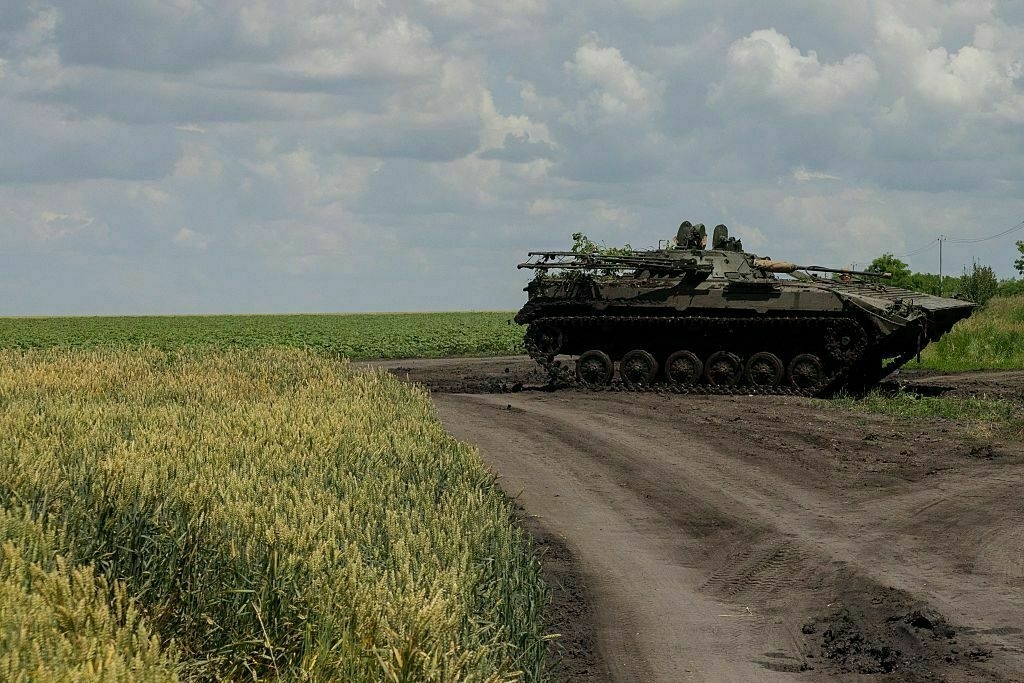
-
Dnipropetrovsk village likely contested despite Russia's claim of its capture
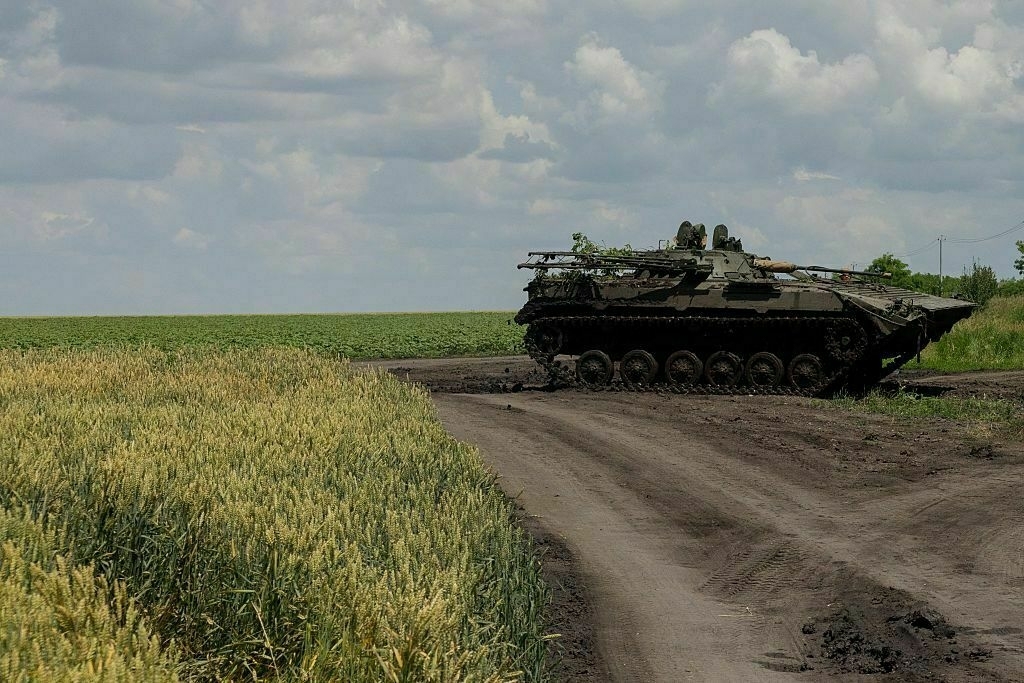
The village of Dachne in the southern part of Dnipropetrovsk Oblast appears to be contested, according to the Finnish Black Bird Group open-source intelligence collective.
The Russian Defense Ministry on July 7 claimed to have seized Dachne, which would mark the first village to be under Russian control in the industrial Dnipropetrovsk Oblast, located just west of the war-torn Donetsk Oblast.
The Ukrainian military denied the claimed capture, calling it “disinformation."
Viktor Tregubov, spokesperson for Ukraine’s Khortytsia group of forces, said that Dachne is under Ukrainian control as of the morning of July 8, with the 37th Marine Brigade firmly holding onto it.
Tregubov told the Kyiv Independent that Russian troops were trying to gain a foothold on Dachne’s outskirts, relying on fast-paced assaults along the roads using light equipment, such as motorcycles.
Russia’s claim over the Dnipropetrovsk Oblast village — a region that did not endure fighting until June — comes as Moscow steps up its offensives in multiple sectors across the front. After launching an offensive campaign in the spring, Russian troops opened a new front in the northeastern Sumy Oblast by capturing some border villages and gradually gained ground in the eastern Donetsk Oblast.
With many Ukrainian units worn out after fighting for over three years with little time off the front due to manpower shortage, it has been increasingly tough to hold the front.
Emil Kastehelmi, a military analyst with the Black Bird Group, said that though Russian troops appear to have entered Dachne “at some point,” it is likely a gray zone, with neither side controlling it since it is too dangerous to get in.
The 37th brigade on July 6 posted a video on Facebook, where its soldiers from the 2nd battalion were apparently raising a flag in Dachne. Kastehelmi said that the video appears to show that the Ukrainians managed to enter at least the northern part of the village.
Getting into Dachne and holding it is likely difficult for both sides, as the village is located on lower ground than the surrounding areas, according to the expert.
“The Russians need to do some kind of a stronger attack to capture the Ukrainian positions on top of the reach line in order to gain a solid presence in the village,” Kastehelmi told the Kyiv Independent, adding that the village has been contested for over a week.
“Probably the Ukrainians have at least good positions to defend in the area, but then again, staying in the village may be deadly for soldiers, as Russians can already enter it at least with these small patrols or squads."
While Western military experts have doubted that a single village or a few in Dnipropetrovsk Oblast hold military values, they believe it may be politically important for Moscow to secure progress in a new Ukrainian region.
By trying to move deeper into Dnipropetrovsk Oblast, Russia appears to be eyeing widening its southern flank in an ongoing attack on Pokrovsk, Donetsk Oblast, located nearby. Rather than storming straight into these key cities or towns, Moscow has relied on first encircling them from multiple sides to make it as difficult as possible for Ukraine to keep the logistics roots operating.
Kastehelmi said that Russian troops have been advancing toward the border between Dnipropetrovsk and Donetsk oblasts “relatively quickly” since June. But he pointed out that it is an area where Ukraine could “exchange land for Russian men and equipment” because Russia advancing forward in this border area won’t significantly affect the overall front-line situation.
It also appears that Russia is searching for a focus area for a “concentrated push,” spreading its troops widely.
"(This) then leads to a situation where it may be difficult for them to actually achieve anything decisive quickly,” Kastehelmi said.
‘They have to be able to defend themselves’ — Trump says US will send additional weapons shipments to Ukraine, criticizes Putin“They’re getting hit very hard. We’re gonna have to send more weapons, your defensive weapons primarily,” U.S. President Donald Trump said. The Kyiv IndependentVolodymyr Ivanyshyn
The Kyiv IndependentVolodymyr Ivanyshyn